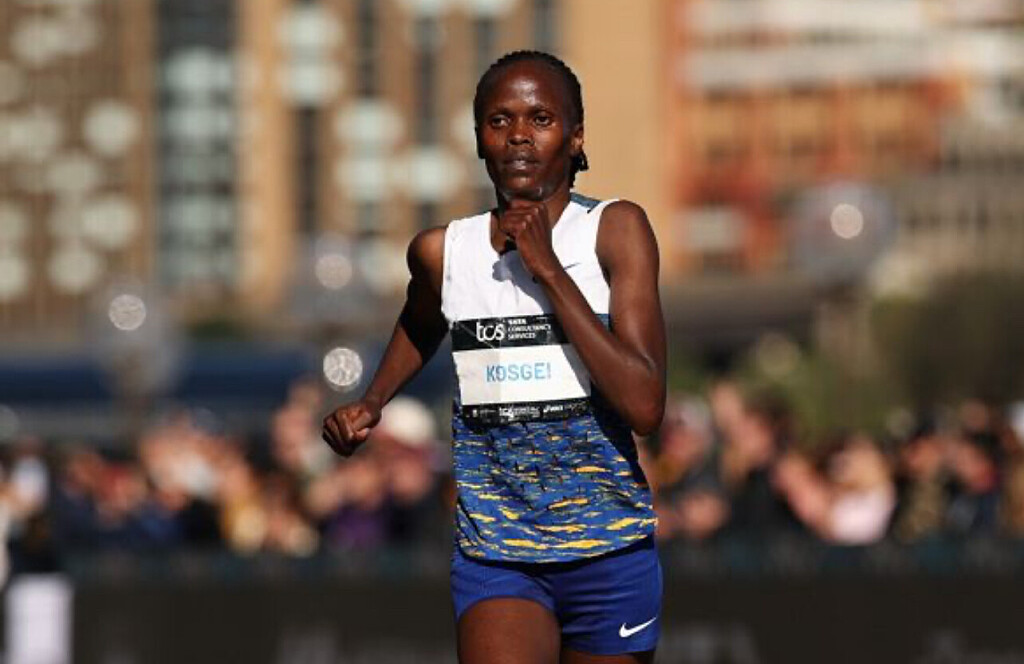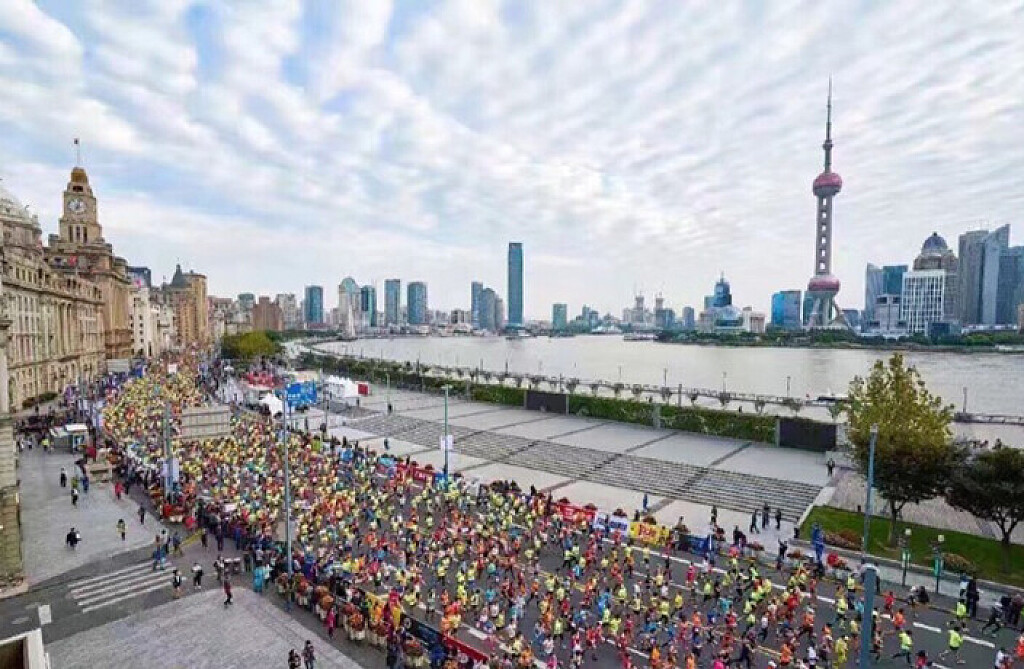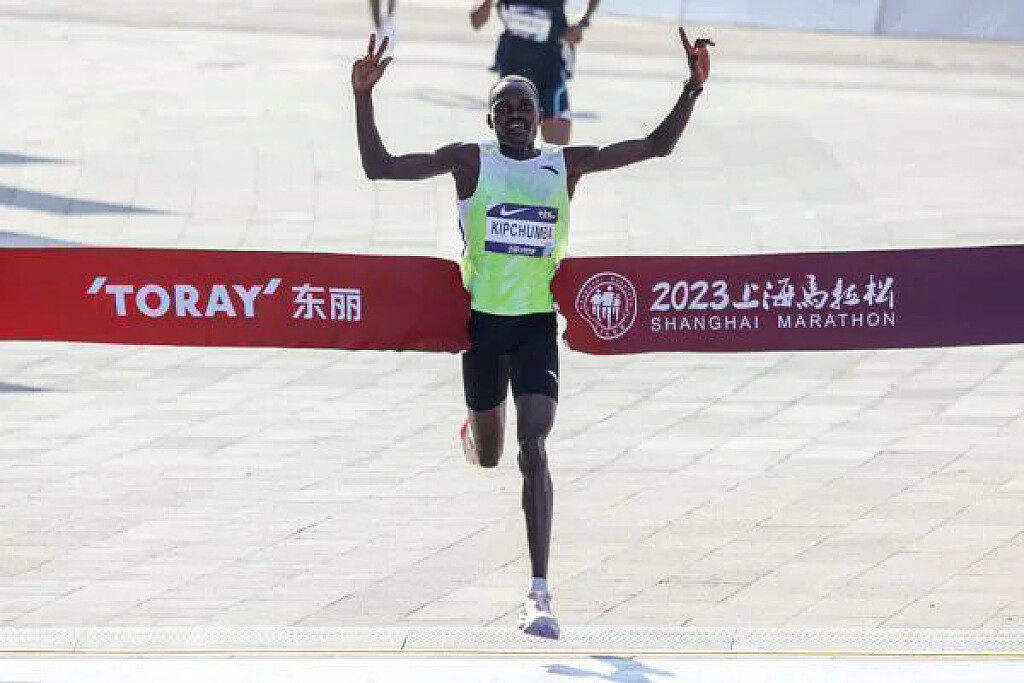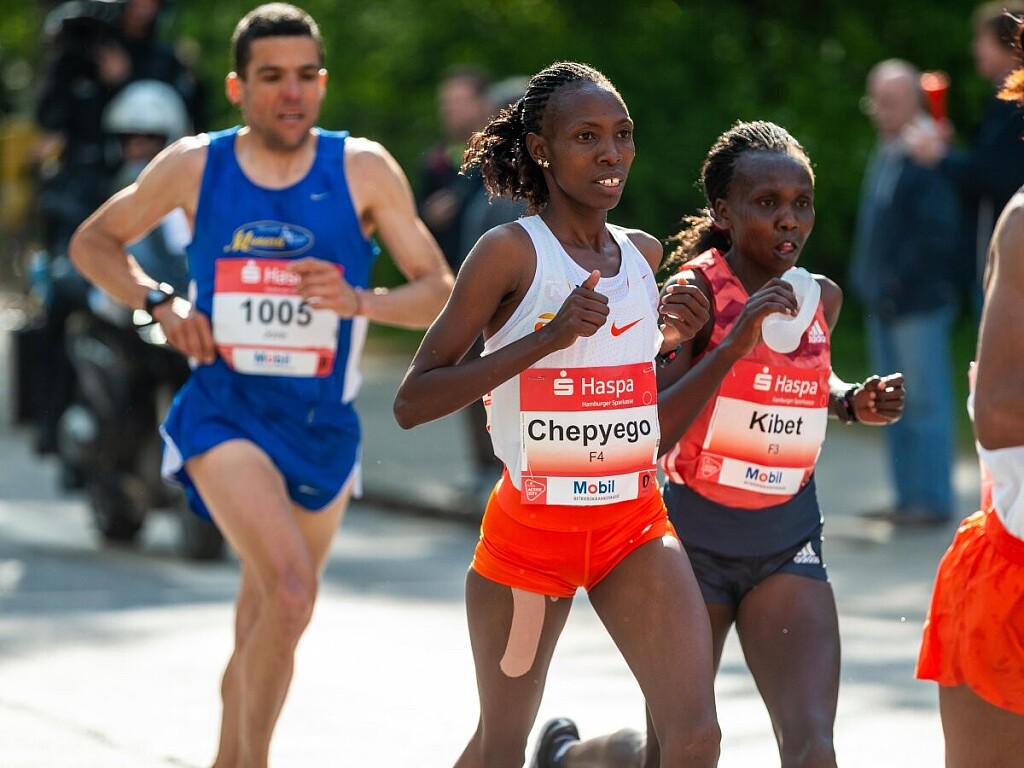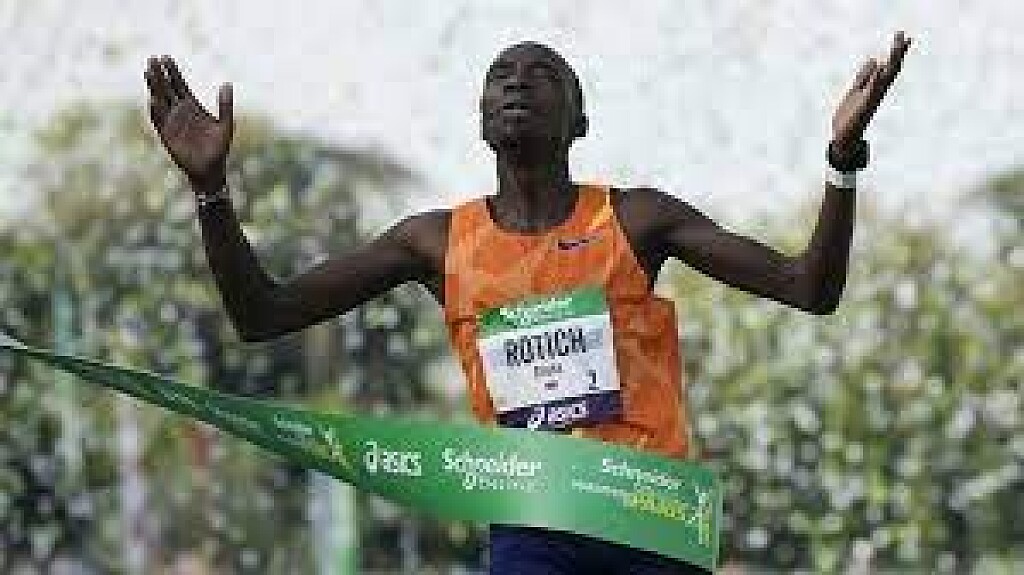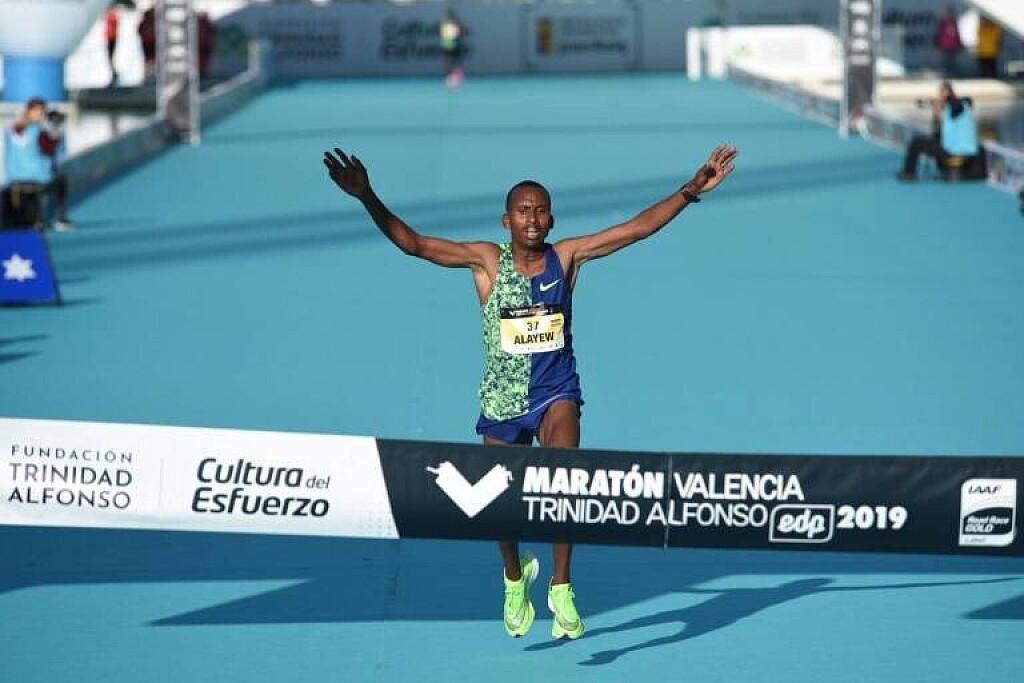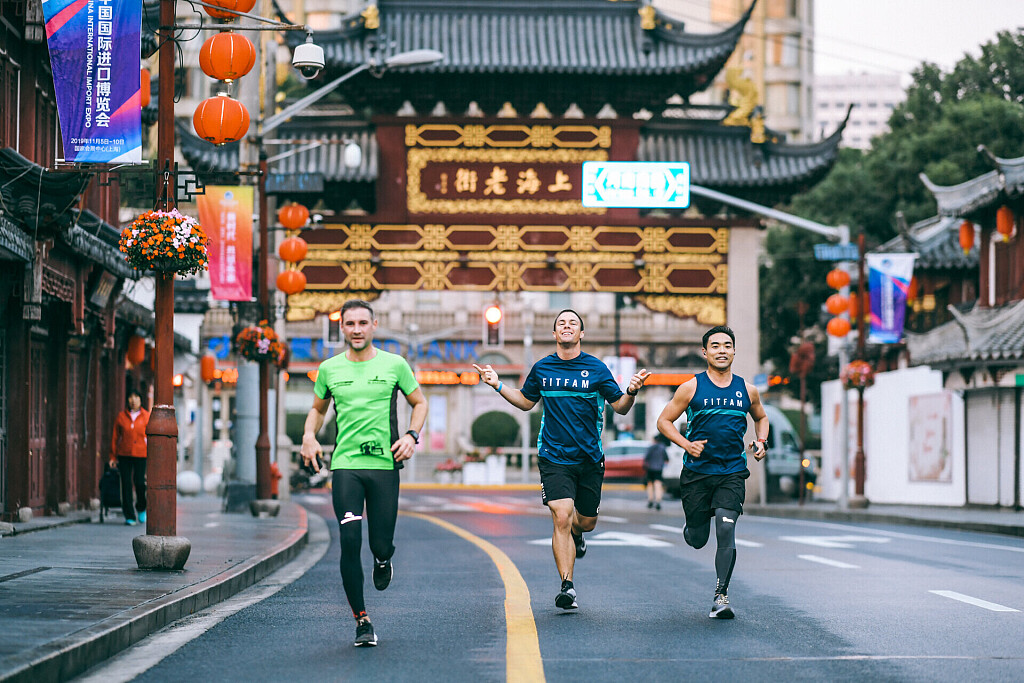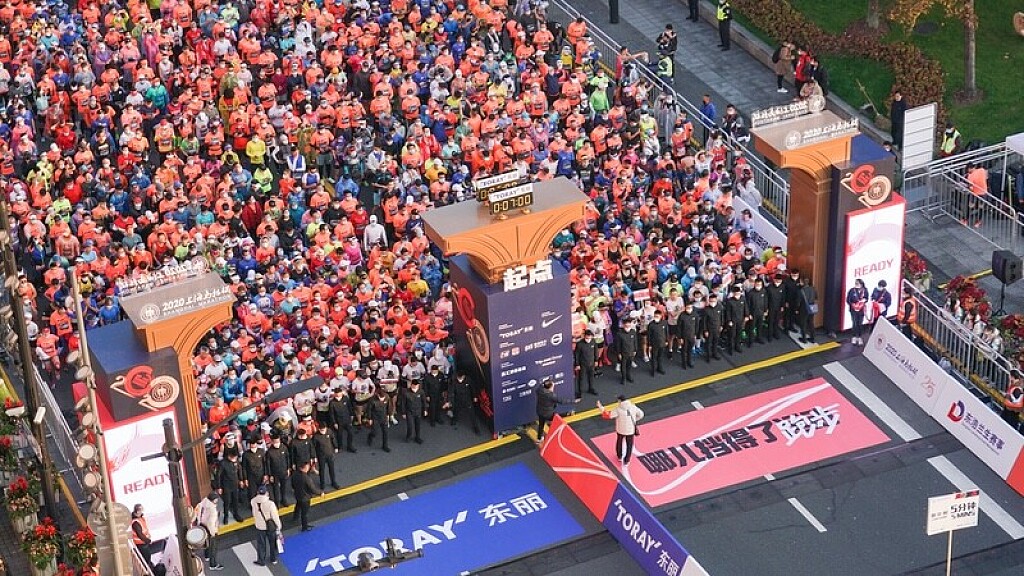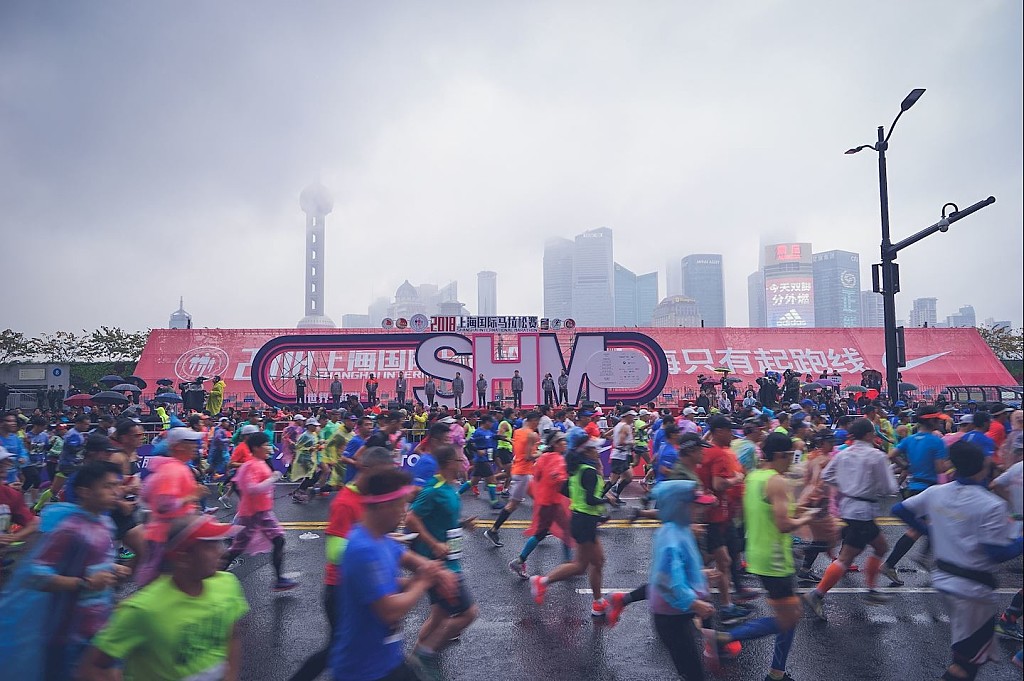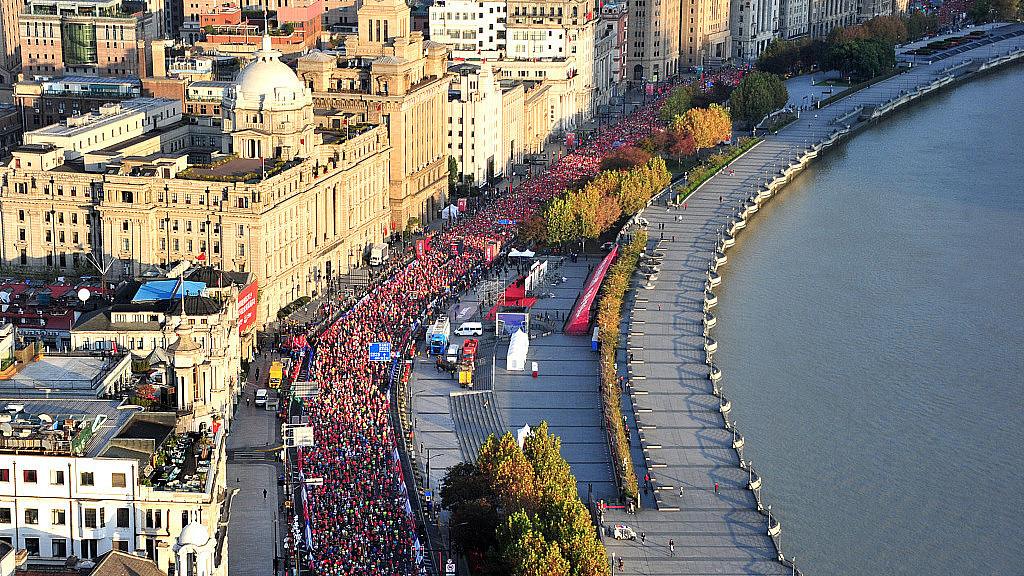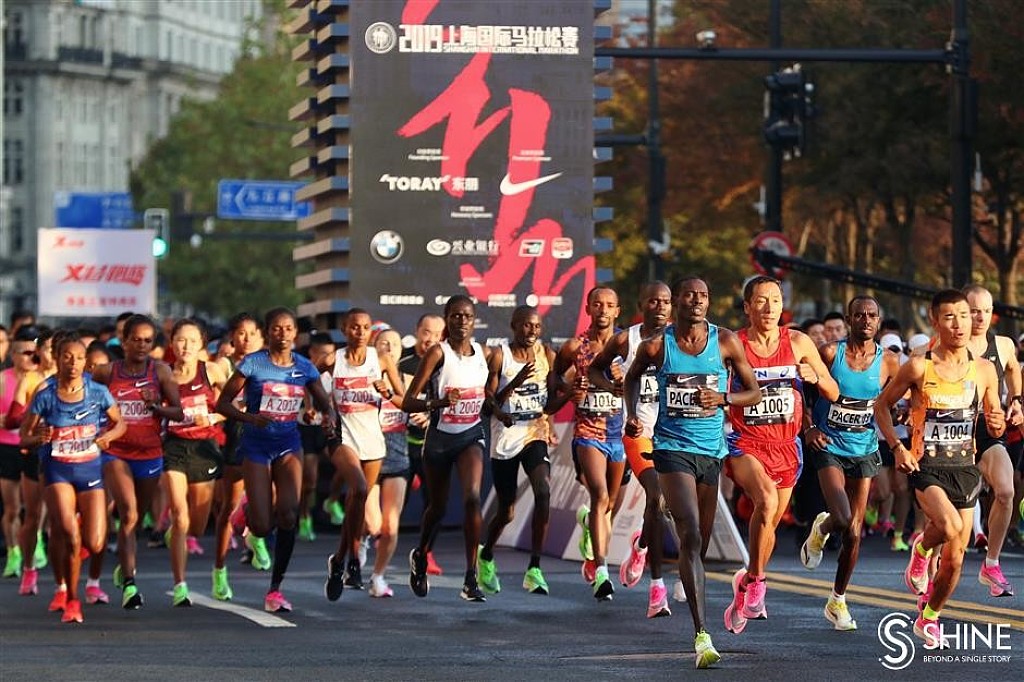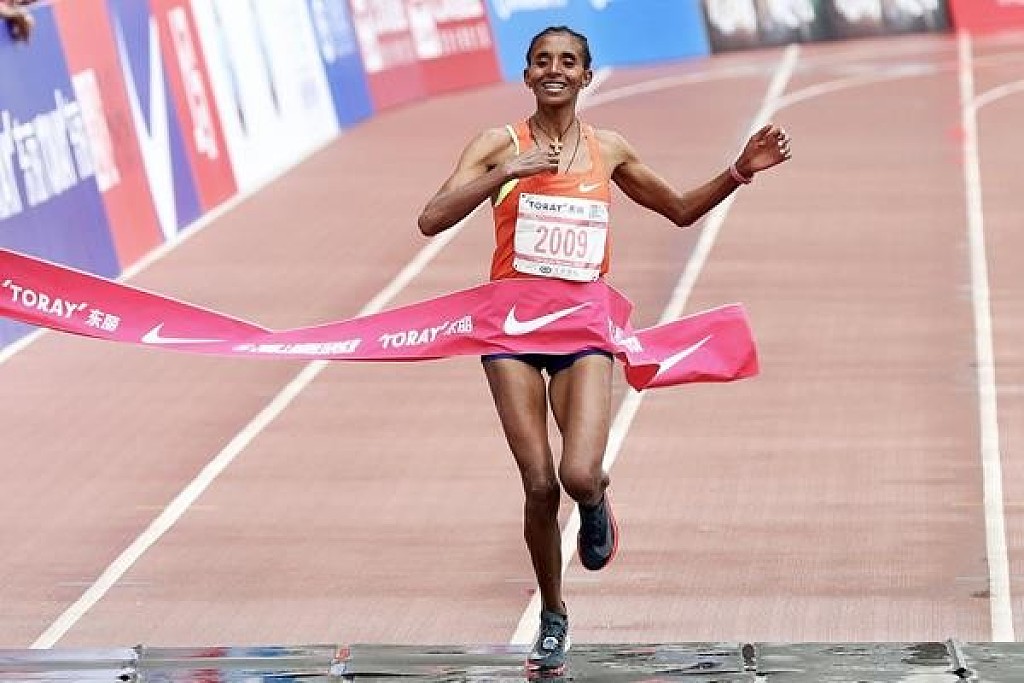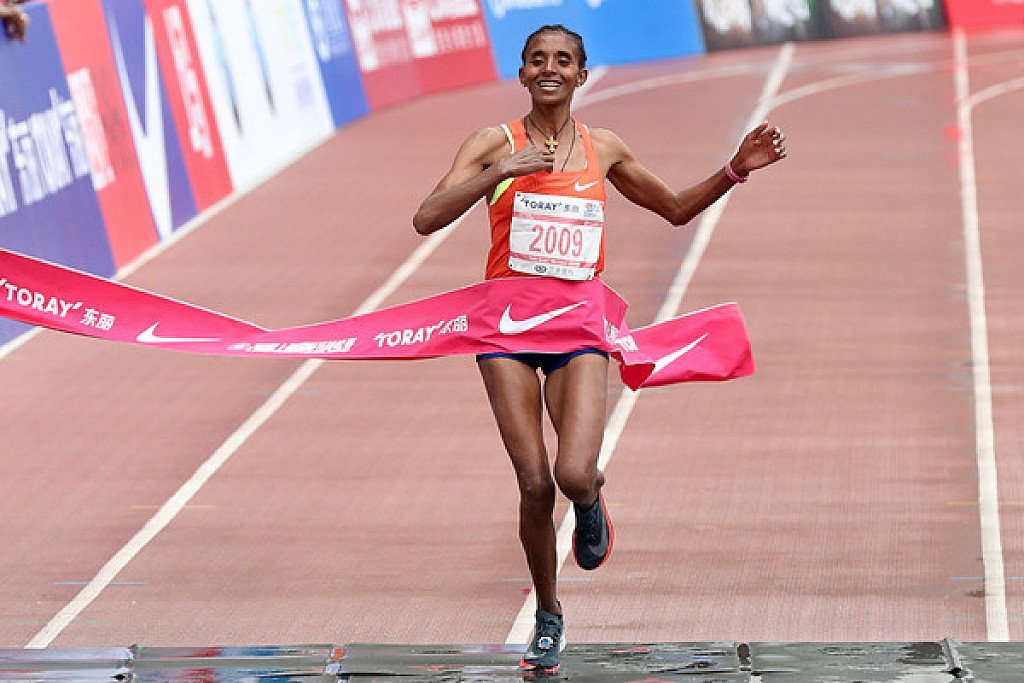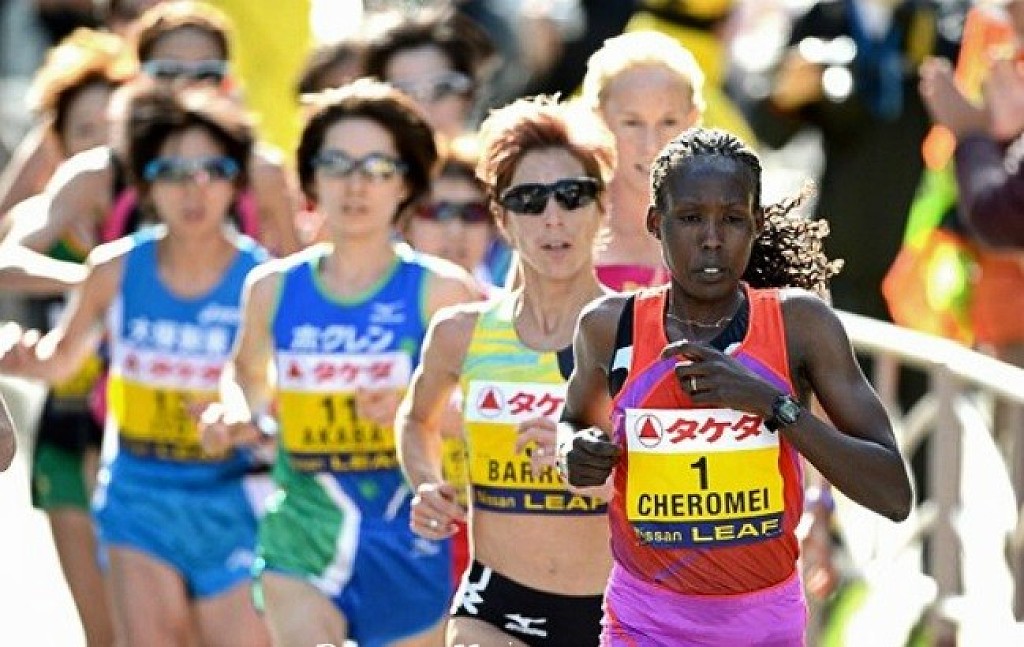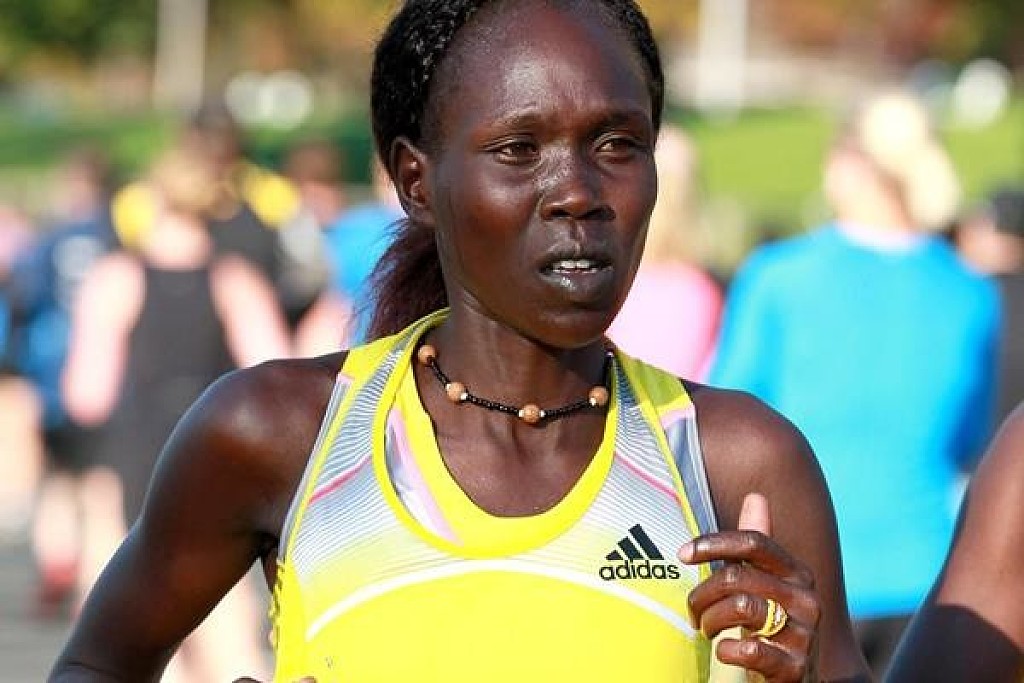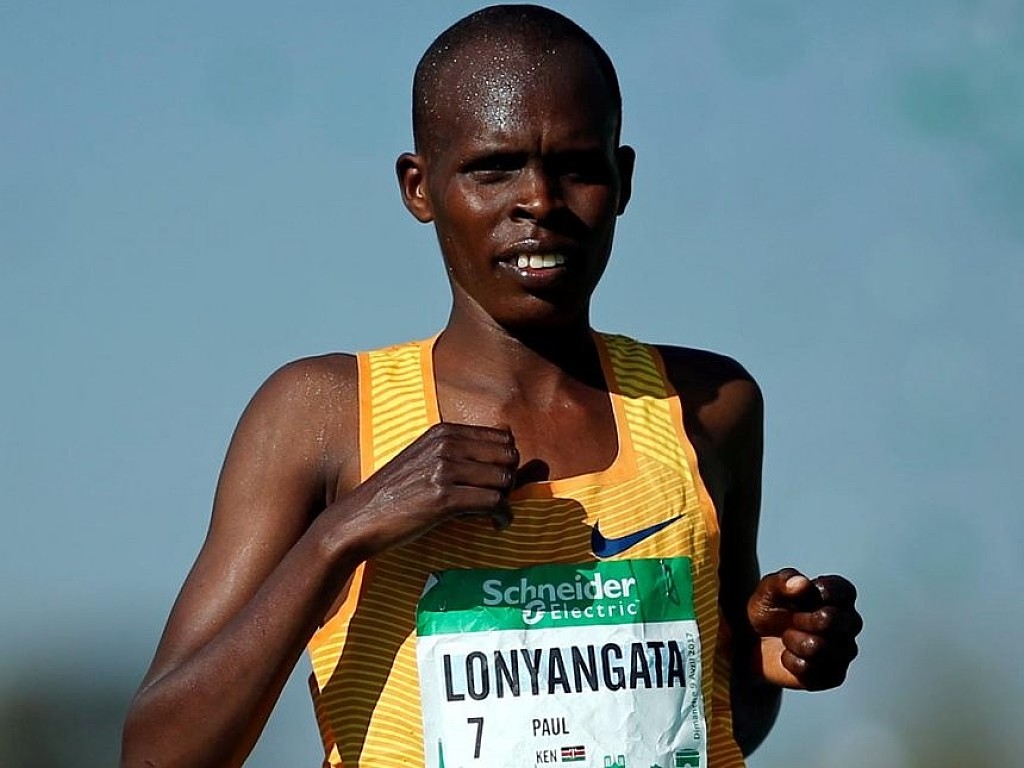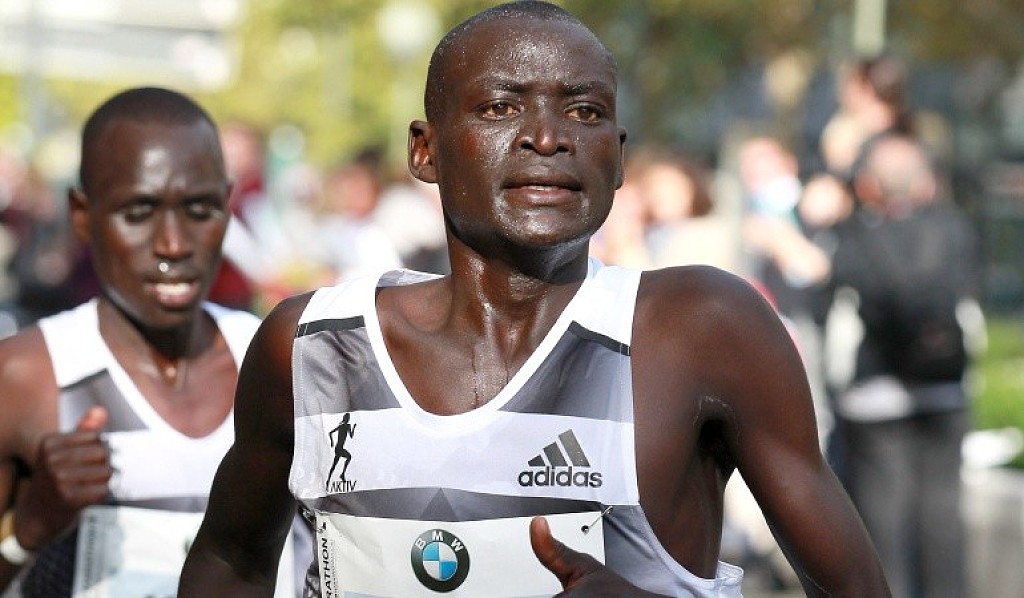Running News Daily
Running News Daily is edited by Bob Anderson. Send your news items to bob@mybestruns.com Advertising opportunities available. Train the Kenyan Way at KATA Kenya and Portugal owned and operated by Bob Anderson. Be sure to catch our movie A Long Run the movie KATA Running Camps and KATA Potato Farms - 31 now open in Kenya! https://kata.ke/
Index to Daily Posts · Sign Up For Updates · Run The World Feed
Stacked Fields Set for Sunday’s Shanghai Marathon as Kosgei and Kipchumba Return
The 2025 Shanghai Marathon — a World Athletics Platinum Label event — is set for Sunday (30), and both the women’s and men’s races are shaping up as some of the strongest in the event’s history. Former world record-holder Brigid Kosgei and defending men’s champion Philimon Kiptoo Kipchumba headline a deep international lineup chasing fast times on one of Asia’s premier courses.
The mass start field in Shanghai will once again deliver the energy and depth that has become a signature of this Platinum Label event, with tens of thousands of runners pouring through the city streets behind one of the strongest elite line-ups of the season. Local club runners, age-group veterans, first-time marathoners, and international amateurs will all share the course with the world’s best, creating a fast, colorful, and highly competitive atmosphere from start to finish.
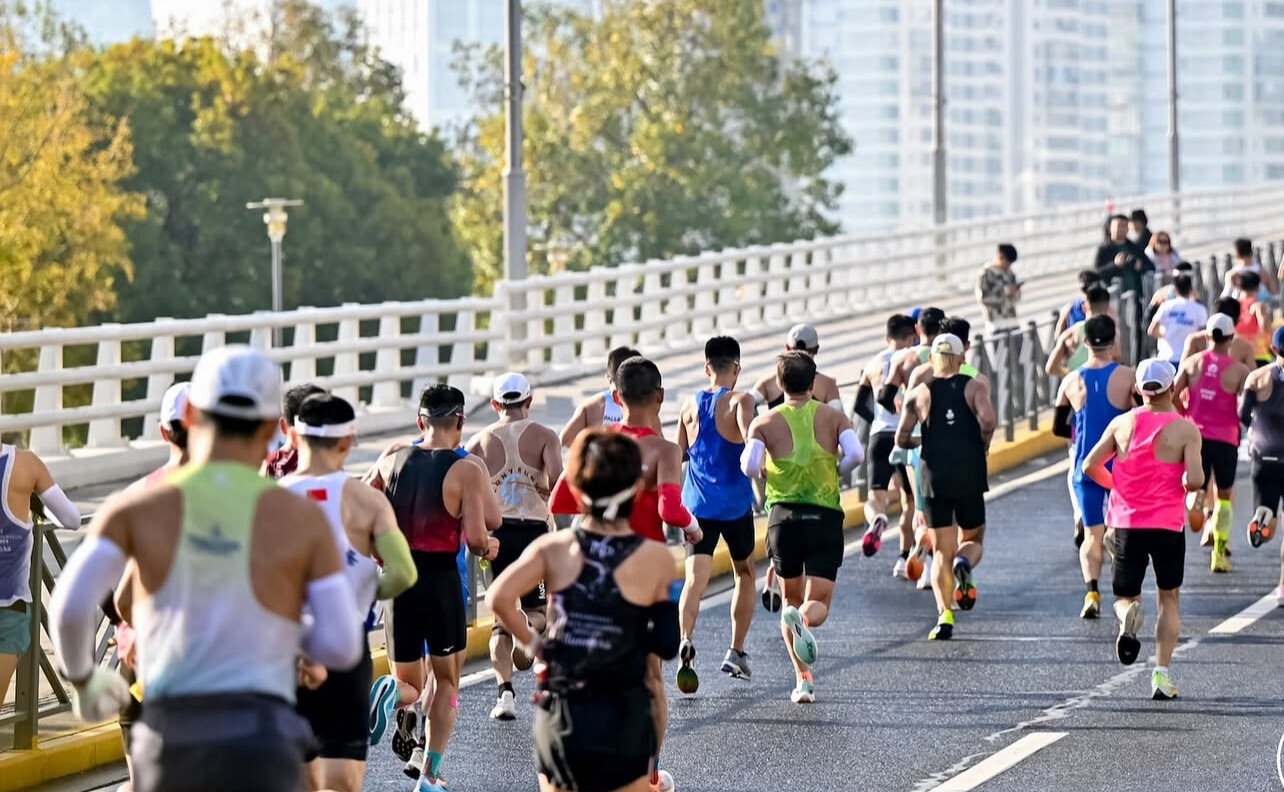
With ideal late-November conditions expected and Shanghai’s reputation for producing personal bests, the mass field is poised for another year of standout performances and unforgettable marathon moments.

Kosgei Targets First Win in Two Years — and a Course Record
Brigid Kosgei, whose 2:14:04 stood as the world record from 2019 to 2023, lines up for her third marathon of the year. The 31-year-old Kenyan has been consistently sharp in 2025—second in Hamburg (2:18:26) and again in Sydney (2:18:56).
A victory in Shanghai would be her first since Abu Dhabi 2023, but the stakes go beyond winning:
• The course record stands at 2:20:36 (Yebrgual Melese, 2018).
• Pacers have been asked to roll out at 2:17:50 pace, fast enough to challenge both the course mark and the Chinese all-comers’ record (2:18:09 by Ruti Aga, 2023).
Kosgei will not be alone. Two sub-2:20 performers stand in her way:
• Irine Cheptai (KEN) — PB 2:17:51, coming off strong runs in Chicago and Boston.
• Tiruye Mesfin (ETH) — PB 2:18:35, part of Ethiopia’s long history of dominance here.
Ethiopian women have won 10 of the last 14 editions, and Mesfin leads their charge again.
China brings a serious contender as well.
• Zhang Deshun, the No. 3 all-time Chinese marathoner (2:20:53 at Tokyo), returns just two weeks after winning the National Games.
Add in Bekelech Gudeta (ETH) — who won marathons in Seoul and Mexico City this year — and the women’s race becomes one of the most competitive in Shanghai’s history.
Four Sub-2:04 Ethiopians Lead Men’s Lineup

The men’s race may be even deeper. Ethiopia sends a quartet capable of pushing into all-time territory:
• Deresa Geleta (ETH) — 2:02:38, fastest in the field
• Birhanu Legese (ETH) — 2:02:48, two-time Tokyo champion
• Milkesa Mengesha (ETH) — 2024 Berlin winner
• Dawit Wolde (ETH) — former Xiamen champion
Geleta has been brilliant when healthy, clocking 2:02:38 in Valencia and 2:03:51 in Tokyo this year, though he dropped out of Wuxi and the World Championships. Legese tuned up with a 1:00:54 at the New Delhi Half.
But Ethiopia is far from guaranteed victory.
Kiptoo Kipchumba Returns to Defend His Title
Kenya’s Philimon Kiptoo Kipchumba, the 2023 champion, owns the Chinese all-comers’ record of 2:05:35 set in Shanghai. He hasn’t raced since placing 10th here last year, but he returns with unfinished business.
He is joined by a strong Kenyan contingent:
• Titus Kipruto — 2:04:54
• Solomon Kirwa Yego — 2:05:42
• Kenneth Keter — 2:05:53
• Edmond Kipngetich — 2:06:47
China’s biggest hope is Feng Peiyou, the second-fastest Chinese marathoner ever (2:07:06). A small improvement would break the national record of 2:06:57.
Pacers will target 2:58/km (≈2:05:00) — fast enough to threaten Kiptoo’s all-comers’ record.
Leading Entries
Women
• Brigid Kosgei (KEN) – 2:14:04
• Irine Chepet Cheptai (KEN) – 2:17:51
• Tiruye Mesfin (ETH) – 2:18:35
• Selly Chepyego Kaptich (KEN) – 2:20:03
• Zhang Deshun (CHN) – 2:20:53
• Bekelech Gudeta (ETH) – 2:21:36
• Veronicah Njeri Maina (KEN) – 2:24:46
• Xia Yuyu (CHN) – 2:25:45
• Wu Bing (CHN) – 2:26:01
• Li Meizhen (CHN) – 2:27:51
• Shen Ni (CHN) – 2:28:47
• Huang Xuemei (CHN) – 2:29:51
Men
• Deresa Geleta (ETH) – 2:02:38
• Birhanu Legese (ETH) – 2:02:48
• Dawit Wolde (ETH) – 2:03:48
• Haftu Teklu (ETH) – 2:04:42
• Titus Kipruto (KEN) – 2:04:54
• Philimon Kiptoo Kipchumba (KEN) – 2:05:35
• Solomon Kirwa Yego (KEN) – 2:05:42
• Kenneth Keter (KEN) – 2:05:53
• Edmond Kipngetich (KEN) – 2:06:47
• Feng Peiyou (CHN) – 2:07:06
• Challa Gossa (ETH) – 2:07:32
• Wu Xiangdong (CHN) – 2:08:04
by World Athletics
Login to leave a comment
Shanghai International Marathon
Shanghai International Marathon has established itself as the marquee running event on China’s Marathon calendar. Every November, tens of thousand participants run passing the many historical places of this city such as Bund Bull, Customs House, Shanghai Museum, Shanghai Grand Theater, Shanghai Exhibition center, Jing’an Temple, Nan Pu Bridge, Lu Pu Bridge, Long Hua Temple, Shanghai Stadium. The course records...
more...Shanghai Marathon could be the next Abbott World Marathon Major
Shanghai International Marathon joins Sydney and Cape Town as candidates to become the seventh world major.
On Thursday, Abbott World Marathon Majors (AbbottWMM) announced that China’s Shanghai Marathon will be the newest race to join the majors candidacy process. Shanghai replaces the (previously nominated) Chengdu Marathon, joining the TCS Sydney Marathon and the Sanlam Cape Town Marathon in a bid to become the seventh marathon major.
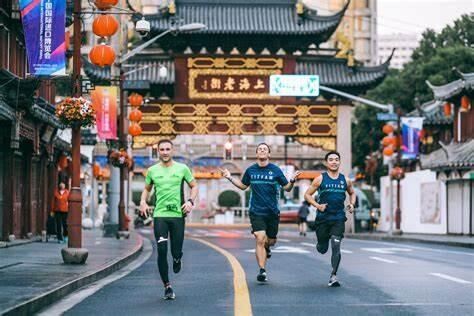
This announcement marks the beginning of Abbott WMM’s multi-year evaluation process for Shanghai. To become a WMM, the race must meet specific criteria for participation, organization, certification, sustainability and legacy for two consecutive years over the next three years.
If successful, Shanghai will join an elite group of races—Tokyo Marathon, Boston Marathon, TCS London Marathon, BMW-Berlin Marathon, Bank of America Chicago Marathon, and TCS New York City Marathon—as a new member of the prestigious AbbottWMM series, as early as 2027.
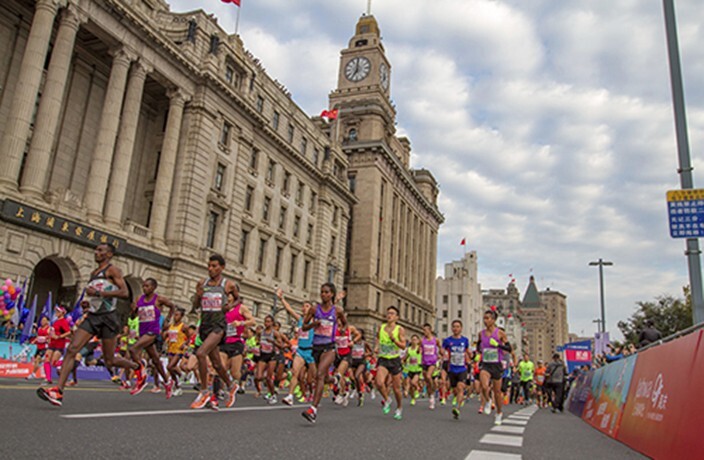
AbbottWMM’s decision to potentially expand into China reflects its aim to explore and grow in one of the biggest and fastest-growing running markets worldwide.
AbbottWMM CEO Dawna Stone said in a press release, “This presents an exciting opportunity to expand our impact into Asia and further our mission to create, grow, and support opportunities for all to discover the power of the marathon community.”
For more than a decade, the Shanghai International Marathon, held in late November since 1996, has been categorized as a Platinum Label Road Race by World Athletics.
The course is flat and fast, and showcases the city’s most scenic and iconic landmarks. Last year, the Shanghai Marathon weekend attracted more than 30,000 participants across all distances. The 2024 Shanghai Marathon will take place on Sunday, Dec. 1.
by Marley Dickinson
Login to leave a comment
Shanghai International Marathon
Shanghai International Marathon has established itself as the marquee running event on China’s Marathon calendar. Every November, tens of thousand participants run passing the many historical places of this city such as Bund Bull, Customs House, Shanghai Museum, Shanghai Grand Theater, Shanghai Exhibition center, Jing’an Temple, Nan Pu Bridge, Lu Pu Bridge, Long Hua Temple, Shanghai Stadium. The course records...
more...Kenya's Philimon Kiptoo Kipchumba set an event record in the men's race at the Shanghai Marathon
Kenyan runner Philimon Kiptoo Kipchumba emerged victorious from a three-man battle in the last kilometers at the Shanghai Marathon on Sunday, setting an event record time of two hours five minutes and 35 seconds.
His winning mark surpasses the previous record, set by his compatriot Paul Lonyangata in 2015, who completed the 42.195-kilometer race in 2:07:14.
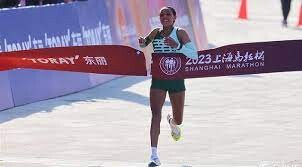
"The weather was fine today. I could see many people giving me motivation. At the end, it was very competitive, so I tried to push at the 42nd kilometer, and that is how I managed to be position one," said Kipchumba.
Alphonce Felix Simbu of Tanzania finished just four seconds behind, claiming second place.
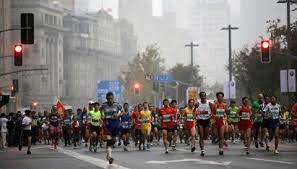
Ethiopia's Siranesh Yirga Dagne, completing the race in 2:21:28, clinched the women's title.
Having participated in the Shanghai Half Marathon previously, Dagne is quite familiar with the city. "During the race, the spectators on both sides of the track are very enthusiastic. I kissed the ground [after winning the competition.] The scenery of the city is also very beautiful," she said.
Wu Xiangdong was the first Chinese runner to finish the men's race, clocking in at 2:11:53. Zhang Deshun led the Chinese female runners with a time of 2:28:16.
In 2020, the Shanghai Marathon became the first marathon event on the Chinese mainland to be recognized as a Platinum Label Road Race by World Athletics.
According to the organizers, about 12 percent of the 38,000 participants in the 2023 event are from overseas. Among the Chinese runners, more than 10,000 come from outside Shanghai.
Login to leave a comment
Shanghai International Marathon
Shanghai International Marathon has established itself as the marquee running event on China’s Marathon calendar. Every November, tens of thousand participants run passing the many historical places of this city such as Bund Bull, Customs House, Shanghai Museum, Shanghai Grand Theater, Shanghai Exhibition center, Jing’an Temple, Nan Pu Bridge, Lu Pu Bridge, Long Hua Temple, Shanghai Stadium. The course records...
more...Selly Chepyego highlights Shanghai marathon
Selly Chepyego highlights the Kenyan contingent at Sunday's Shanghai marathon, a World Athletics Platinum Label road race.
The trio of Betty Chepkwony, Emily Arusio and debutant Sandrafelis Chebet are also in the mix as Kenya's quest for glory takes them to the Asian continent.
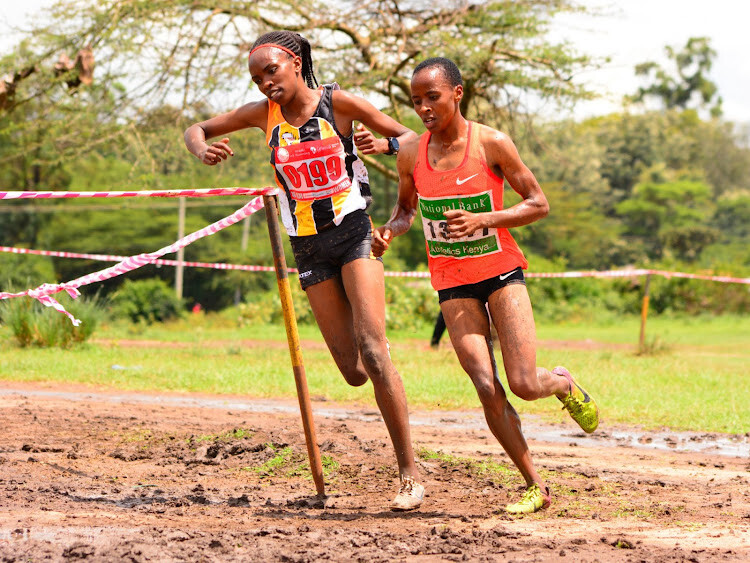
The quintet of sub-2:21 runners will be gunning for the course record of 2:20:36 set by Ethiopian Yebrgual Melese in 2018.
The 22-year-old Tadu Teshome of Ethiopia, owning a PB of 2:17:36, is the favourite in Shanghai.
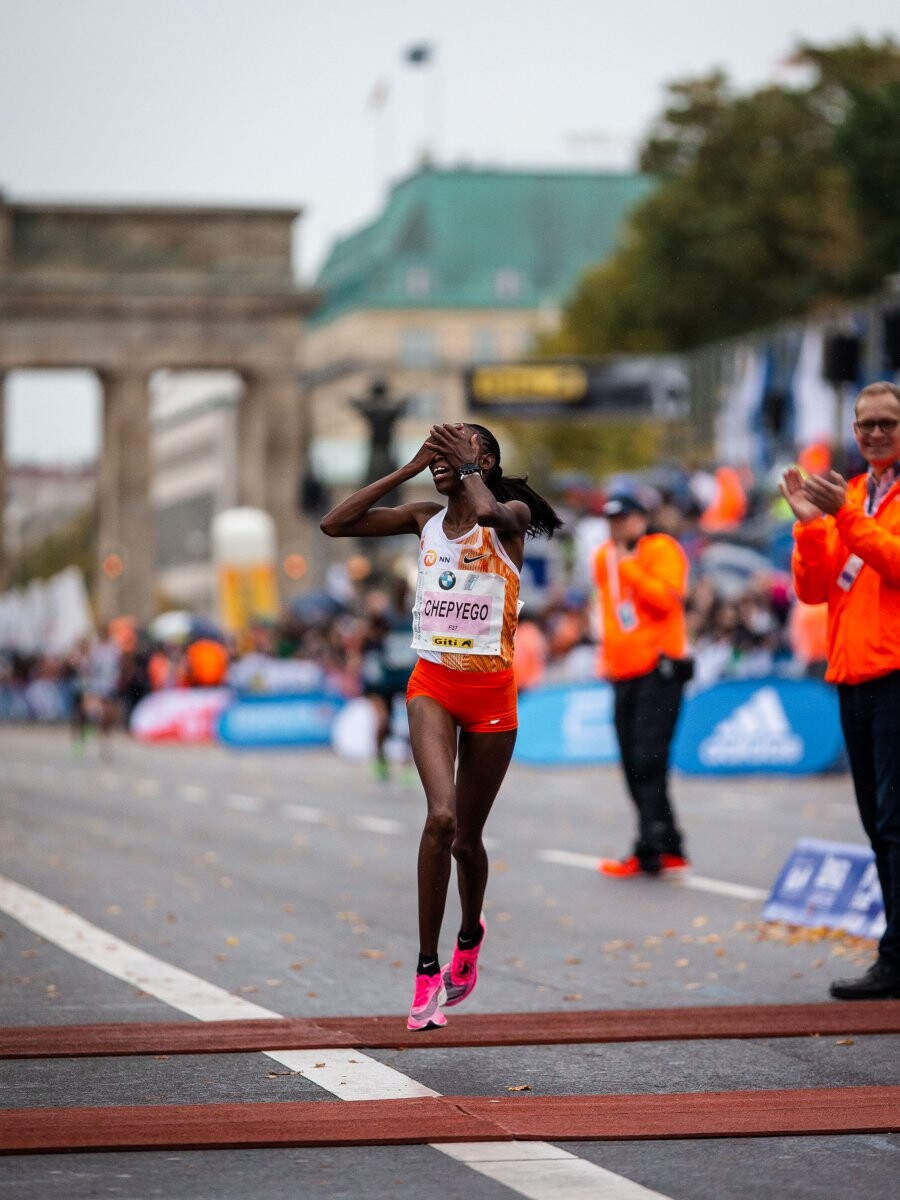
The 2022 Copenhagen Half Marathon champion, who is also a former winner of marathons in Barcelona and Riyadh, achieved her career-best mark last year in Valencia. She clocked 2:20:04 to finish fifth last month in Chicago.
Bahrain’s national record-holder Eunice Chumba and Chepyego could be the biggest threats to Teshome.
The 30-year-old Chumba, a 2:20:02 performer, has remained unbeaten after two races in 2023, clocking 2:20:31 to win in Rotterdam in April and winning the gold medal at the Asian Games in Hangzhou early last month.
Apart from her victory in Hangzhou, Chumba has gained vast experience of winning in China, claiming titles in Dongying and Liupanshui, and at the 2019 Military Games in Wuhan.
Now aged 38, Chepyego is still making progress. The 2014 World Half Marathon bronze medallist set a PB of 2:20:03 to finish second in Barcelona in March and clocked 2:27:09 to place seventh at the World Athletics Championships in Budapest.
Other title contenders include Ethiopian Etagegne Woldu, who set her PB of 2:20:03 last year in Valencia, and Eritrea’s Nazret Weldu, who finished eighth, one place behind Chepyego, in 2:27:23 in Budapest. Before that she improved the national record to 2:20:29 to finish fourth at the World Championships in Oregon in July 2022.
Defending champion Zhang Deshun of China is also toeing the line. Last year Zhang produced a 2:28:17 victory in Shanghai. In March, she improved her PB to 2:24:05 to finish fourth in Nagoya before finishing second behind Chumba at the Hangzhou Asian Games in 2:27:55.
by Evans Ousuru
Login to leave a comment
Shanghai International Marathon
Shanghai International Marathon has established itself as the marquee running event on China’s Marathon calendar. Every November, tens of thousand participants run passing the many historical places of this city such as Bund Bull, Customs House, Shanghai Museum, Shanghai Grand Theater, Shanghai Exhibition center, Jing’an Temple, Nan Pu Bridge, Lu Pu Bridge, Long Hua Temple, Shanghai Stadium. The course records...
more...Elisha Rotich to lead Kenya's medal hunt at Shanghai marathon
Elisha Rotich will lead the Kenyan charge for medals at the Shanghai Marathon on Sunday where assaults on both the men's and women's course records are expected.
The Shanghai Marathon is a World Athletics Platinum Label road race.
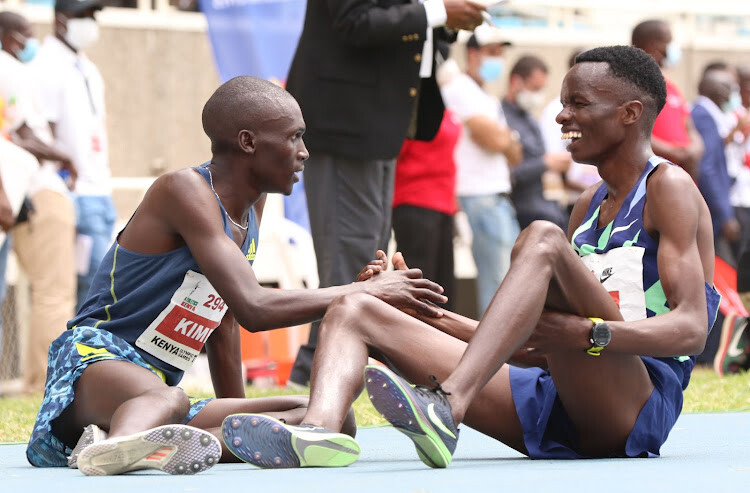
A total of 12 runners in the men’s field have personal bests inside the 2:07:14 course record set by Kenya’s Paul Lonyangata back in 2015.
Rotich has a personal best of 2:04:21. He will have Nicholas Kirwa (2:05:01), Moses Kibet (2:05:20), Eric Kiptanui (2:05:47), Enock Onchari (2:05:47) and Kenneth Keter (2:06:05) for company.
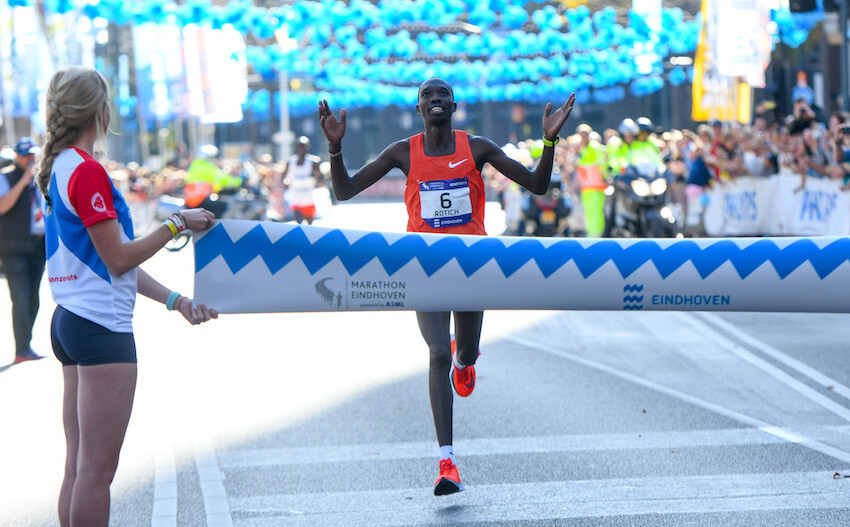
Others are Solomon Kirwa Yego (2:06:24), Victor Kipchirchir (2:06:54) Philimon Kiptoo Kipchumba (2:07:28), Moses Kemei (2:09:26) and Sammy Kosgei (2:11:54)
Kinde Atanaw of Ethiopia is the fastest entrant courtesy of his 2:03:51 PB set four years ago in Valencia, where he staged a convincing victory in his debut over the classic distance.
The 30-year-old went on to register two sub-2:06 marks in 2021 and 2022 respectively, including a fourth-place finish at the London Marathon last year, but he failed to finish the race in London this year in what has been his only outing of 2023 so far.
Rotich, 33, won the Paris Marathon two years ago with a career-best of 2:04:21 and he also has five other marathon victories to his name, but he has yet to prove his shape so far in 2023.
Ethiopia’s Abayneh Degu, a 2:04:53 performer, will chase his first career marathon title in Shanghai. He clocked 2:08:28 in Osaka in February and finished fifth in China’s Lanzhou in 2:12:57 five months ago.
Fellow Ethiopian Tadu Abate is one of the most in-form runners in the men’s field. He has achieved sub-2:06 results in both of his two races of the year so far, including improving his PB to 2:05:38 to finish sixth in Tokyo.
Like Abate, Kenya’s Enock Onchari will also arrive in Shanghai with high spirits. The 24-year-old achieved his PB of 2:05:47 in Seville in February and celebrated his first-ever marathon victory in 2:07:52 one month later in Wuxi.
The field also includes three other sub-2:06 runners, all from Kenya: Nicholas Kirwa (2:05:01), Moses Kibet (2:05:20) and Eric Kiptanui (2:05:47).
The field of local athletes is headed by Jia Erenjia, the third-place finisher in Shanghai last year and winner of the 2020 race. He improved his PB to 2:09:54 in Berlin two months ago.
by Evans Ousuru
Login to leave a comment
Shanghai International Marathon
Shanghai International Marathon has established itself as the marquee running event on China’s Marathon calendar. Every November, tens of thousand participants run passing the many historical places of this city such as Bund Bull, Customs House, Shanghai Museum, Shanghai Grand Theater, Shanghai Exhibition center, Jing’an Temple, Nan Pu Bridge, Lu Pu Bridge, Long Hua Temple, Shanghai Stadium. The course records...
more...Course records under threat at Shanghai Marathon
Assaults on both the men's and women's course records are expected at the Shanghai Marathon, a World Athletics Platinum Label road race, on Sunday (26).
A total of 12 runners in the men’s field have personal bests inside the 2:07:14 course record set by Kenya’s Paul Lonyangata back in 2015.
Kinde Atanaw of Ethiopia is the fastest entrant courtesy of his 2:03:51 PB set four years ago in Valencia, where he staged a convincing victory in his debut over the classic distance.
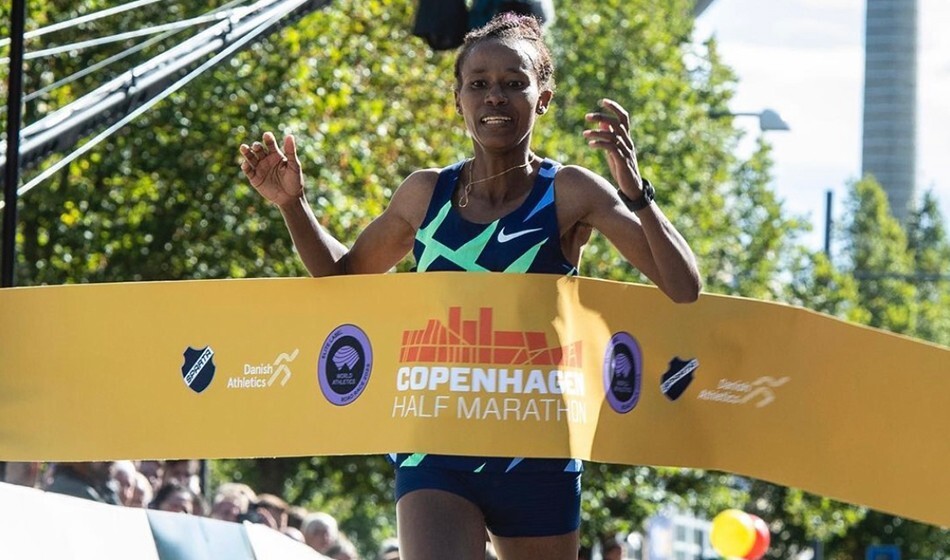
The 30-year-old went on to register two sub-2:06 marks in 2021 and 2022 respectively, including a fourth-place finish at the London Marathon last year, but he failed to finish the race in London this year in what has been his only outing of 2023 so far.
Elisha Rotich will lead the Kenyan charge. The 33-year-old won the Paris Marathon two years ago with a career best of 2:04:21 and he also has five other marathon victories to his name, but he has yet to prove his shape so far in 2023.
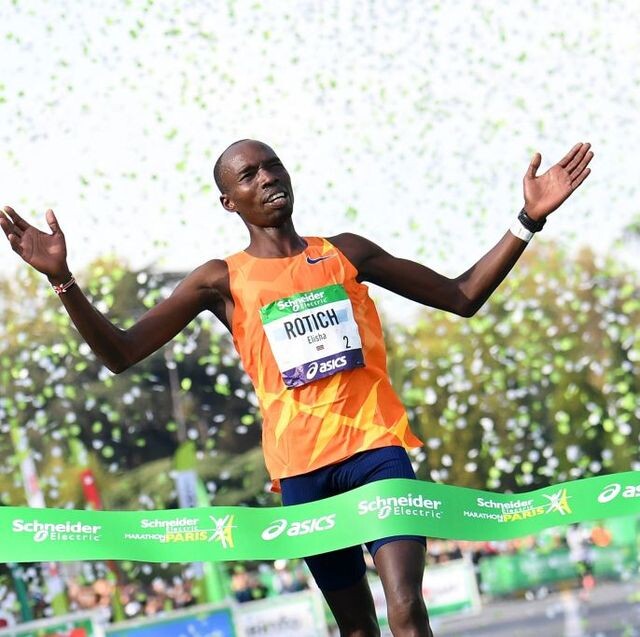
Ethiopia’s Abayneh Degu, a 2:04:53 performer, will chase his first career marathon title in Shanghai. He clocked 2:08:28 in Osaka in February and finished fifth in China’s Lanzhou in 2:12:57 five months ago.
Fellow Ethiopian Tadu Abate is one of the most in-form runners in the men’s field. He has achieved sub-2:06 results in both of his two races of the year so far, including improving his PB to 2:05:38 to finish sixth in Tokyo.
Like Abate, Kenya’s Enock Onchari will also arrive in Shanghai with high spirits. The 24-year-old achieved his PB of 2:05:47 in Seville in February and celebrated his first-ever marathon victory in 2:07:52 one month later in Wuxi.
The field also includes three other sub-2:06 runners, all from Kenya: Nicholas Kirwa (2:05:01), Moses Kibet (2:05:20) and Eric Kiptanui (2:05:47). The field of local athletes is headed by Jia Erenjia, third-place finisher in Shanghai last year and winner of the 2020 race. He improved his PB to 2:09:54 in Berlin two months ago.
Teshome heads women’s field
In the women’s race, a quintet of sub-2:21 runners will be gunning for the course record of 2:20:36 set by Ethiopian Yebrgual Melese in 2018.
The 22-year-old Tadu Teshome of Ethiopia, owning a PB of 2:17:36, is the favourite in Shanghai. The 2022 Copenhagen Half Marathon champion, who is also a former winner of marathons in Barcelona and Riyadh, achieved her career best mark last year in Valencia. She clocked 2:20:04 to finish fifth last month in Chicago.
Bahrain’s national record-holder Eunice Chumba and Selly Chepyego of Kenya could be the biggest threats to Teshome. The 30-year-old Chumba, a 2:20:02 performer, has remained unbeaten after two races in 2023, clocking 2:20:31 to win in Rotterdam in April and winning the gold medal at the Asian Games in Hangzhou early last month.
Apart from her victory in Hangzhou, Chumba has gained vast experience of winning in China, claiming titles in Dongying and Liupanshui, and at the 2019 Military Games in Wuhan.
Now aged 38, Chepyego is still making progress. The 2014 world half marathon bronze medallist set a PB of 2:20:03 to finish second in Barcelona in March and clocked 2:27:09 to place seventh at the World Athletics Championships in Budapest.
Other title contenders include Ethiopian Etagegne Woldu, who set her PB of 2:20:03 last year in Valencia, and Eritrea’s Nazret Weldu, who finished eighth, one place behind Chepyego, in 2:27:23 in Budapest. Before that she improved the national record to 2:20:29 to finish fourth at the World Championships in Oregon in July 2022.
Defending champion Zhang Deshun of China is also toeing the line. Last year Zhang produced a 2:28:17 victory in Shanghai. In March, she improved her PB to 2:24:05 to finish fourth in Nagoya before finishing second behind Chumba at the Hangzhou Asian Games in 2:27:55.
by World Athletics
Login to leave a comment
Shanghai International Marathon
Shanghai International Marathon has established itself as the marquee running event on China’s Marathon calendar. Every November, tens of thousand participants run passing the many historical places of this city such as Bund Bull, Customs House, Shanghai Museum, Shanghai Grand Theater, Shanghai Exhibition center, Jing’an Temple, Nan Pu Bridge, Lu Pu Bridge, Long Hua Temple, Shanghai Stadium. The course records...
more...2022 Shanghai Marathon to be held on Nov 27
The Shanghai Marathon will be held on Nov 27, said organizers in a post on their website on Thursday.
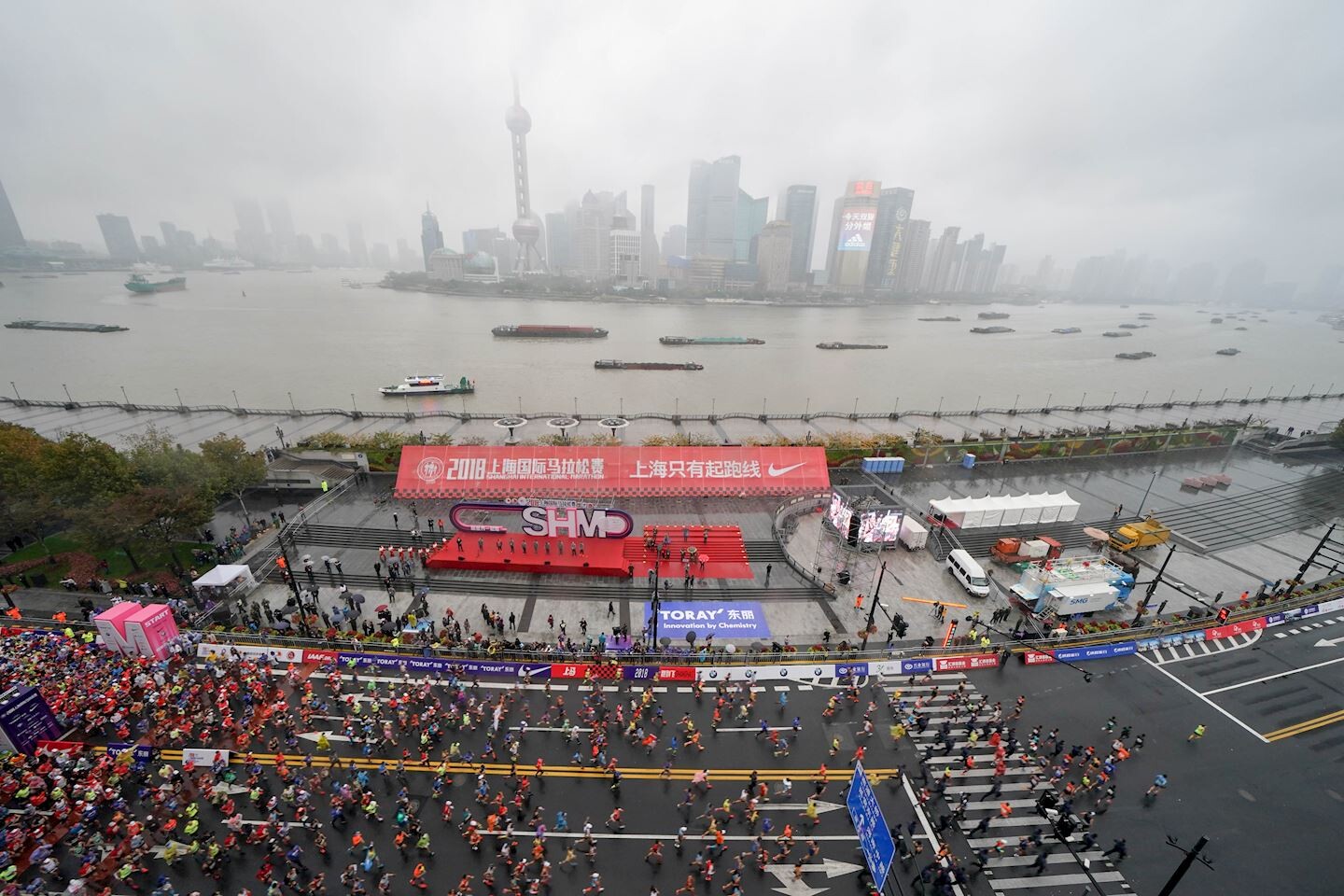
The organizers of the marathon, which will have 18,000 runners, require all participants to stay in Shanghai from a week before receiving the race pack, according to the notice.
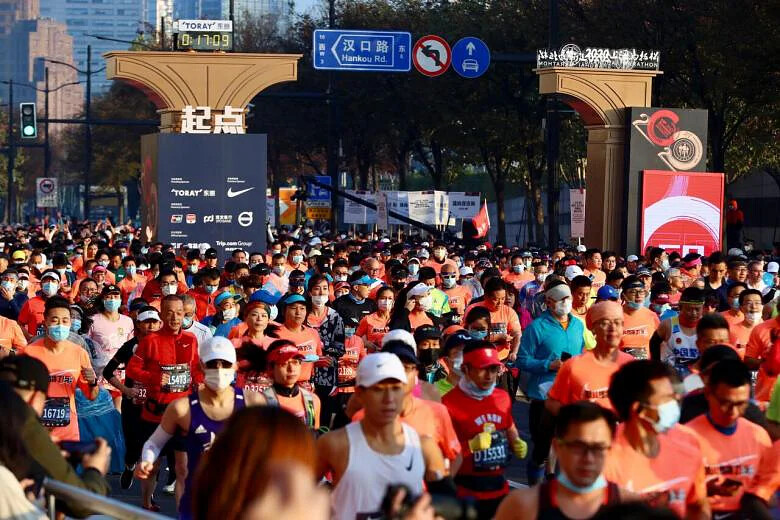
Shanghai postponed its 2021 marathon over COVID-19 concerns, and canceled the event in January 2022, according to the official site of Shanghai Marathon.
Login to leave a comment
Shanghai International Marathon
Shanghai International Marathon has established itself as the marquee running event on China’s Marathon calendar. Every November, tens of thousand participants run passing the many historical places of this city such as Bund Bull, Customs House, Shanghai Museum, Shanghai Grand Theater, Shanghai Exhibition center, Jing’an Temple, Nan Pu Bridge, Lu Pu Bridge, Long Hua Temple, Shanghai Stadium. The course records...
more...2021 Shanghai Marathon has been postponed indefinitely due to COVID-19
The total number of cases reported during China’s current Covid-19 wave passed 1,000, as Shanghai’s marathon became the latest to fall victim to one of the country’s most serious outbreaks this year.
But the National Health Commission on Wednesday reported the lowest daily figure in just shy of two weeks, with 39 new local symptomatic cases. It also reported 25 asymptomatic cases – which it does not count in its official case tally – and 29 imported cases, 15 of them symptomatic.
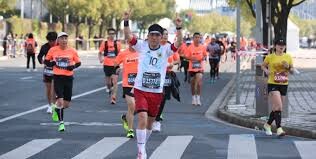
That took the outbreak’s total local symptomatic cases to 1,023, so far traced to two separate chains of transmission starting in the northern Inner Mongolia autonomous region and Heilongjiang province in the northeast.
The organizers of the Shanghai International Marathon on Tuesday announced the postponement of November 28’s race, following the decisions in late October to postpone marathons in Wuhan, Shijiazhuang and Beijing.
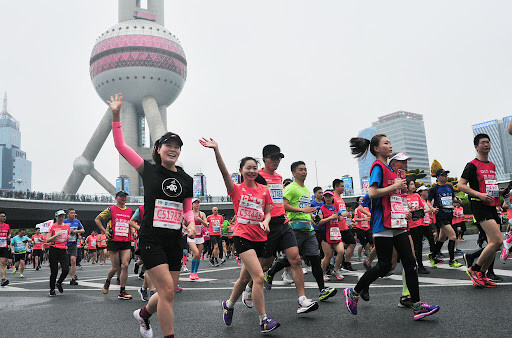
“Please know that our every decision was made on the premise that we have a responsibility to runners and the city,” the Shanghai organisers said. “We have chosen to be cautious and have chosen to prioritise the health and safety of runners and citizens.”
The outbreak was easing, however, based on the moving seven-day average of daily local symptomatic cases, a short-term indicator of whether infections are rising or falling. That figure dropped to 56 after hovering around 65 since last Wednesday.
The coronavirus was spread initially in mid-October when domestic tourists visited restaurants in Inner Mongolia that had infected workers, before travelling by rail and air on cross-provincial routes. The first cases linked to the outbreak were discovered on October 17.
Residents of six neighbourhoods under lockdown in Erenhot, a city in Inner Mongolia, could leave their homes again on Wednesday. City authorities also lifted restrictions in 84 controlled areas that residents had been banned from leaving.
Some of the areas, such as the Mingda and Fenghuafudi residential communities, had been in lockdown since October 20. Authorities had also held seven rounds of mass testing in the city, which borders Mongolia, by the end of October.
China has faced difficulties in limiting the spread of the coronavirus in regions close to less tightly controlled borders. Ruili, which borders Myanmar in the southwestern Yunnan province, and Heihe in Heilongjiang, which borders Russia, have both been localised centres of infection.
The Chinese authorities have continued to pursue a zero-Covid policy, aiming to suppress cases whenever they arise with tough measures including limitations on movement.
The ruling Communist Party is this week holding a high-profile leadership meeting in Beijing. The capital will also host the Winter Olympics in February, bringing athletes and officials to the region and posing challenges for the country’s pandemic control efforts.
by Jack Lau
Login to leave a comment
Shanghai International Marathon
Shanghai International Marathon has established itself as the marquee running event on China’s Marathon calendar. Every November, tens of thousand participants run passing the many historical places of this city such as Bund Bull, Customs House, Shanghai Museum, Shanghai Grand Theater, Shanghai Exhibition center, Jing’an Temple, Nan Pu Bridge, Lu Pu Bridge, Long Hua Temple, Shanghai Stadium. The course records...
more...Shanghai Half Marathon is set for April 18
The 2021 Shanghai Half Marathon, featuring 6,000 runners, has been scheduled for April 18, organizers announced on Wednesday.
The 21-kilometer routes starts from Fenghe Road, close to the Oriental Pearl TV Tower in the Pudong New Area. Runners will go past the 2010 World Expo site and the riverside New Bund Leisure Park before reaching the finish line at the Shanghai Oriental Sports Center.
The annual event was canceled last year due to the COVID-19 pandemic. Making a return, the event this year will not invite elite runners from overseas, but foreign runners meeting health requirements are welcome.
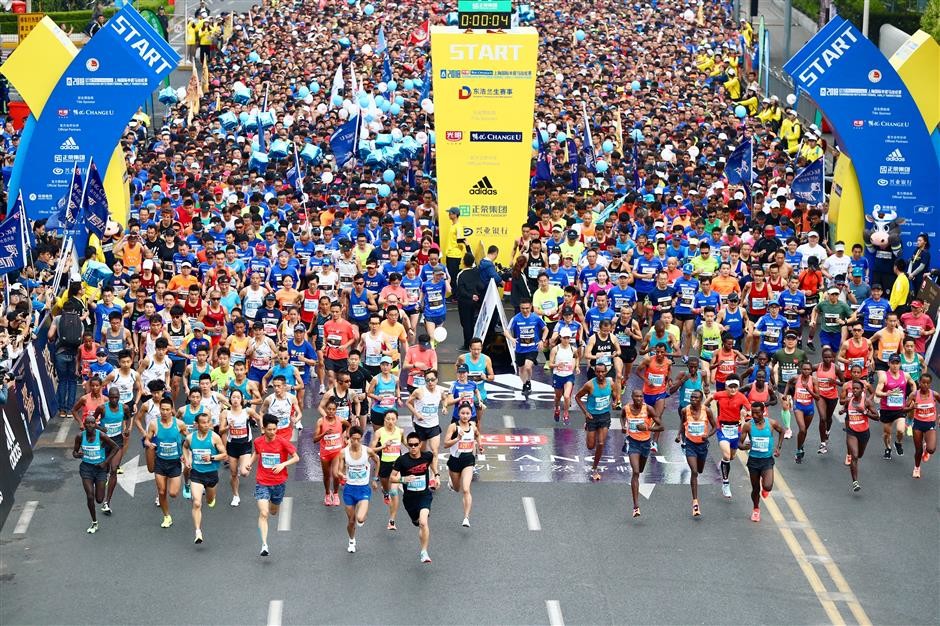
Those interested can log on to the official website (www.shang-ma.com) before March 26 noon for registration. A draw will be held to distribute quotas, and the result will be announced on March 30. The entry fee is 160 yuan (US$24.5).
All runners and front-line staff are required to hand in nucleic acid test reports taken within seven days ahead of the event. Fifteen ambulances and 21 medical spots will be arranged along the route, with water and snack supply stations set up every 5km.
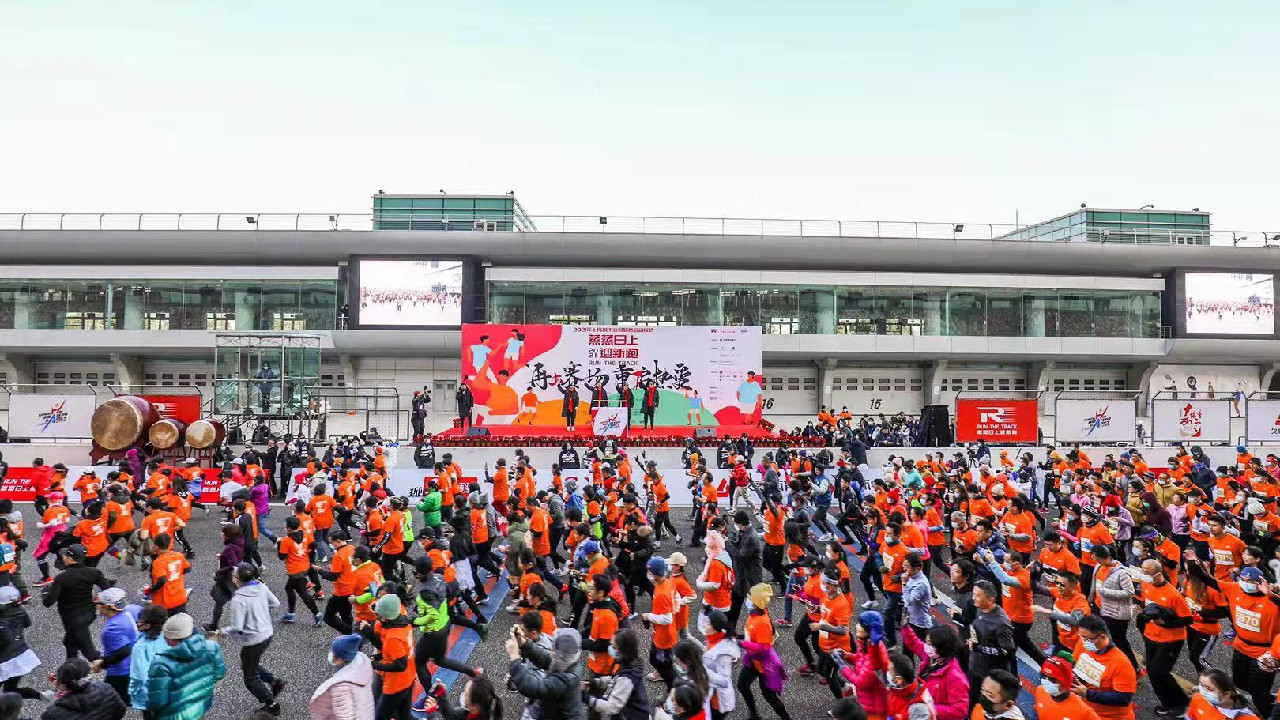
The top three men and women finishers will win 50,000 yuan (US$7,785), 30,000 yuan and 20,000 yuan, respectively. The first 200 male and 100 female finishers will also win quotas for the 2021 Shanghai Marathon, which will be held in the second half of the year.
by Ma Yue
Login to leave a comment
Shanghai International Marathon
Shanghai International Marathon has established itself as the marquee running event on China’s Marathon calendar. Every November, tens of thousand participants run passing the many historical places of this city such as Bund Bull, Customs House, Shanghai Museum, Shanghai Grand Theater, Shanghai Exhibition center, Jing’an Temple, Nan Pu Bridge, Lu Pu Bridge, Long Hua Temple, Shanghai Stadium. The course records...
more...2020 Shanghai Marathon will take place on November 29, organizers announced on Wednesday with a field around of 9,000 runners
The annual event will be scaled down from last year’s 38,000 runners to 9,000 in the aftermath of the coronavirus outbreak. The 10-kilometer and 5.5km races have been canceled and the 9,000 runners will be running the full 42-kilometer distance.
There will be no international runners, or runners from high-risk areas, this year. The event has also altered its route with the finishing line at the riverside West Bund Art Center in Xuhui District instead of Shanghai Stadium.

The race will start at 7am from the Bund. Runners will be divided into three groups and start their journey some minutes apart to avoid crowding. The starting area has a space of about 15,000 square meters and runners will be able to keep a 1-meter distance from each other before the race begins.
The new route will make its first turning at Xinkaihe Road instead of the narrower Jinling Road East. Runners will go past city landmarks that include the pedestrian street on Nanjing Road E, People’s Square, Jing’an Temple and Longhua Temple before reaching the riverside art center.
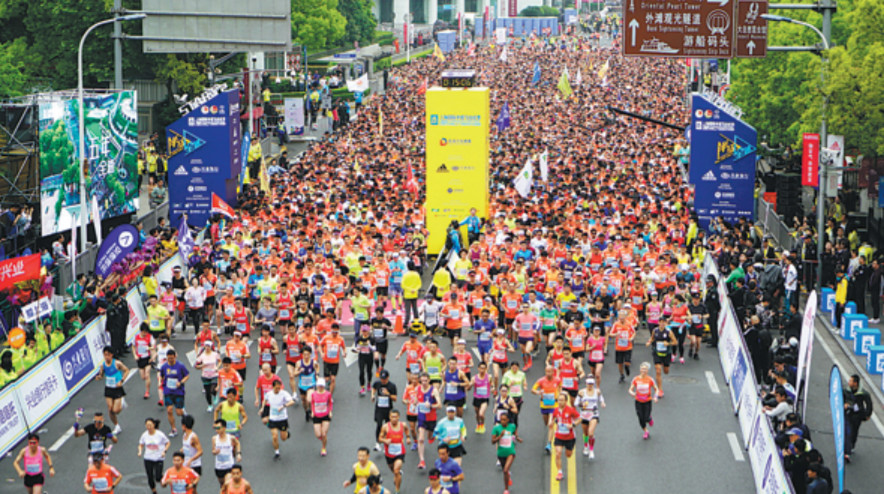
All participants, including front-tier staff, will have to hand in nucleic acid test reports within seven days ahead of the event. Runners will have their identity cards, temperatures and health codes checked before the race.
“I’m happy that the Shanghai Marathon can go on this year under the impact of the pandemic,” said Dr Zhang Wenhong, a leading expert in Shanghai’s fight against the coronavirus.
“I know that Shanghai’s virus-fighting departments have already made preparations and got the city ready for the event. It’s an encouragement for citizens as well as a recognition of our pandemic-fight efforts,” Zhang said.
“Participants are still reminded to keep a safe distance from each other and avoid gathering during the event,” he added. “I’m expecting more sports activities to be held around the city while participants follow anti-pandemic requirements.”
A total of nine food and drink supply stations will be set along the closed track. Spectator zones have been canceled.
Organizers said plans were in place if participants exhibited symptoms during the event. They would be taken to a quarantined area and organizers would take measures that include canceling the race if necessary.
Registration has already started and will last till 5pm on Saturday. The 9,000 quotas will be distributed through a draw and the results will be announced on October 27. The entry fee is 100 yuan (US$13) for each runner.
The prize money has been set at 150,000 yuan for the winner, and 100,000 and 80,000 yuan for the second and third finishers, respectively.
Considering the shrunken scale, the organizers introduced a “Shanghai Virtual Run” this year. Runners who fail to get entry to the marathon can take part in the event through an online form – to complete the distance on any other track and have the procedure recorded through designated app.
The organizers will select 100 virtual run participants and award them with quotas for next year’s Shanghai Marathon.
by Ma Yue
Login to leave a comment
Shanghai International Marathon
Shanghai International Marathon has established itself as the marquee running event on China’s Marathon calendar. Every November, tens of thousand participants run passing the many historical places of this city such as Bund Bull, Customs House, Shanghai Museum, Shanghai Grand Theater, Shanghai Exhibition center, Jing’an Temple, Nan Pu Bridge, Lu Pu Bridge, Long Hua Temple, Shanghai Stadium. The course records...
more...Lonyangata and Melese regain Shanghai Marathon titles in the heat
Thirty-eight thousand runners from 85 countries and regions beat the heat to challenge their physical limits as the 2019 Shanghai International Marathon began at 7am on Sunday from the Bund.
About 25,000 took part in the marathon, while 6,000 were featured in the 10km race and another 7,000 in the 5.5km run. Kenya’s Paul Lonyangata and Yebrgual Melese of Ethiopia took the men’s and women’s title at the Shanghai International Marathon, a World Athletics Gold Label road race, on Sunday (17).
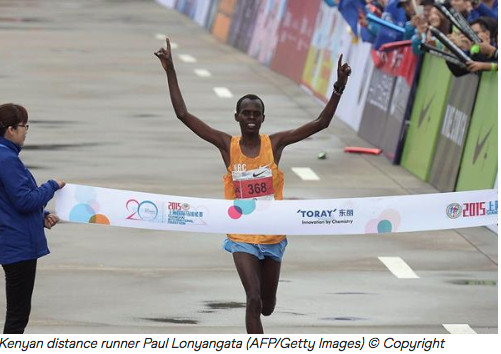
The 26-year-old Lonyangata broke clear before 35km and led alone the rest of the way to hit home with a clocking of 2:28:11, 57 seconds shy of the 2:07:14 course record he set in the Chinese city in 2015.
“It has been five years since I run here last time,” Lonyangata said. “I noticed nobody had broke my course record so I came back to break it myself. But the weather was much hotter than five years ago.”
The temperature was around 15c degrees when the race started but rose quickly. When the men’s leaders reached 20km 1:00:12, it was already near 20c (69F) degrees.
A group of 12 runners led the race to a fast pace in the early stages, reaching 5km in 14:57 and 10km in 29:58. When the leaders passed the 15km mark in 45:01 they were already 47 seconds ahead of the course record, and by 20km they were still six seconds ahead.
But the pace slowed after 20km and when the last pace maker left the seven-runner leading pack, the leaders were 43 seconds behind the record time.
“I think the pacers stopped too early. One of the two pacers stopped after 11 kilometres and the other left by 25km. Because of the weather and the pace maker, I did not break the course record,” said Lonyangata, who decided to control the race with his own pace after 30km and pulled clear by 35 km before breaking the tape in style to celebrate his first marathon victory of the year.
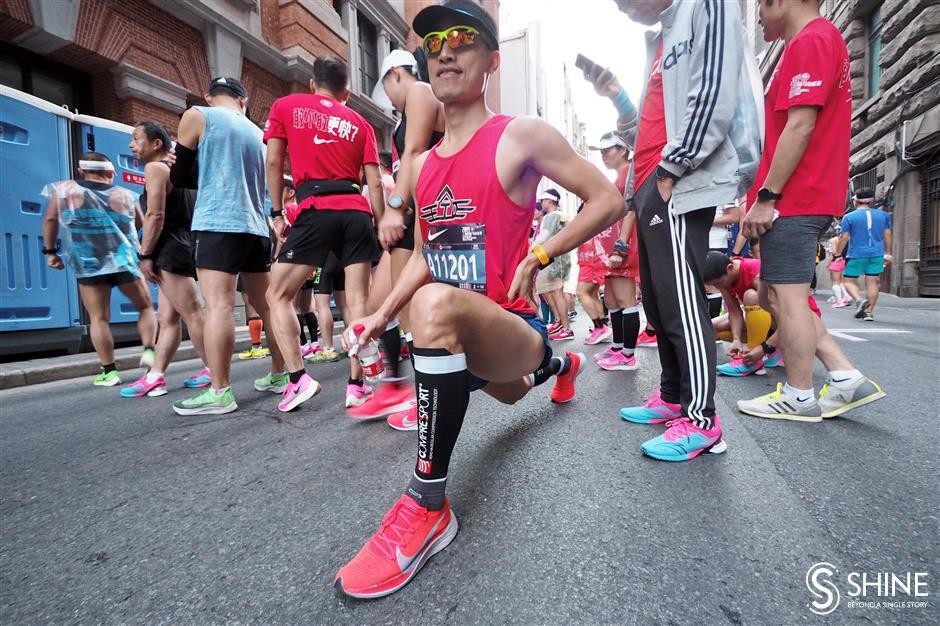
Hassan El Abbassi of Bahrain, who set the Asian record of 2:04:43 last year in Valencia, finished second in 2:08:58, followed by Lmenih Getachew of Ethiopia with a clocking of 2:09:14.
Defending champion Yebrgual Melese also managed to confirm her favourite status in the women’s race although the wining time of 2:23:19 is more than two minutes slower than the 2:20:36 course record she achieved 12 months ago.
As the fastest entrant in the field with a personal best of 2:19:36 set last year in Dubai, the 29-year-old Melese was among a six-athlete leading group in the first half of the race. When she arrived at the 25km water stations in 1:24:12, only countrywoman Waganesh Mekasha managed to keep up with the chasers trailing 16 seconds behind.
After another four kilometres, the 27-year-old Mekasha began to fade gradually. Melese was leading by 14 seconds at 30km and kept widening the gap until wrapping up her fourth title over the classic distance.
Mekasha, a 2:22:45 performer, finish second in 2:25:37 while Ethiopia’s Obse Abdeta, 19, finished third in 2:27:47 in her marathon debut.
Login to leave a comment
Shanghai International Marathon
Shanghai International Marathon has established itself as the marquee running event on China’s Marathon calendar. Every November, tens of thousand participants run passing the many historical places of this city such as Bund Bull, Customs House, Shanghai Museum, Shanghai Grand Theater, Shanghai Exhibition center, Jing’an Temple, Nan Pu Bridge, Lu Pu Bridge, Long Hua Temple, Shanghai Stadium. The course records...
more...Course record-holders Yebrgual Melese and Paul Lonyangata, will return to the Shangai Marathon this weekend
Ethiopia’s Melese won comfortably last year, taking more than a minute off the course record with 2:20:36.
A past winner of the Houston and Prague marathons, Melese set a PB of 2:19:36 when finishing third in Dubai last year, but her form in 2019 hasn’t been quite so good. The 29-year-old finished 11th in Tokyo in March in 2:31:40 but last month clocked a promising 1:09:02 at the Lisbon Half Marathon.
Fellow Ethiopian Waganesh Mekasha is another title contender. The 27-year-old reduced her PB by more than three minutes to finish fourth in Dubai in January in 2:22:45 and went on to clock 2:23:19 at the Yellow River Estuary International Marathon in Dongying seven months ago.
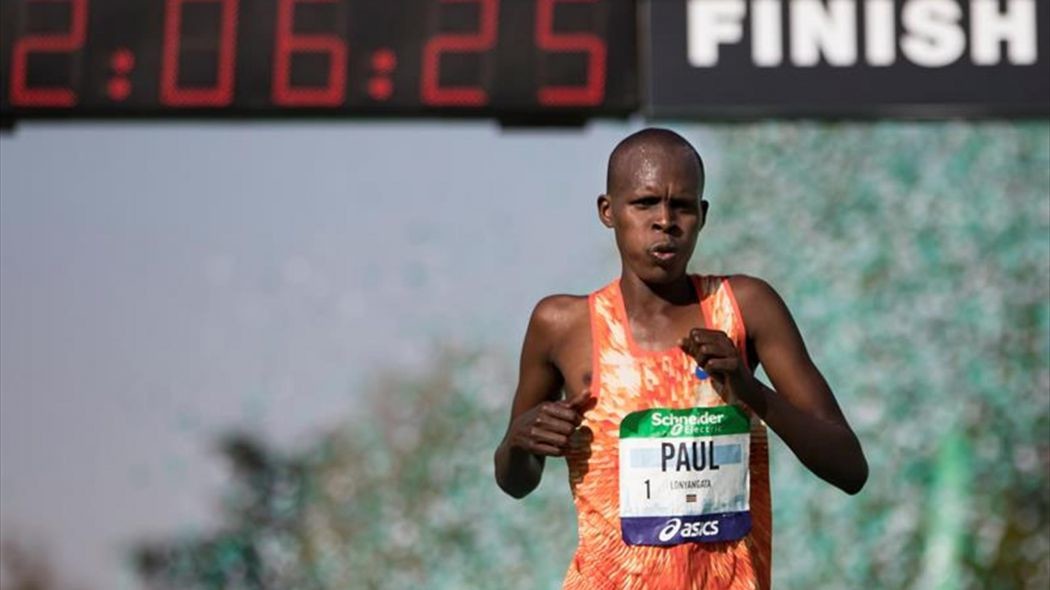
The Ethiopian contingent also includes Fantu Jimma, a 32-year-old with a PB of 2:26:14 set four years ago in Xiamen. It will be Jimma’s fourth marathon of the year, having won in Wuhan in 2:28:25 and finished third in Xiamen and Lanzhou. She was also victorious at the Changzhou West Taihu Lake Half Marathon last month.
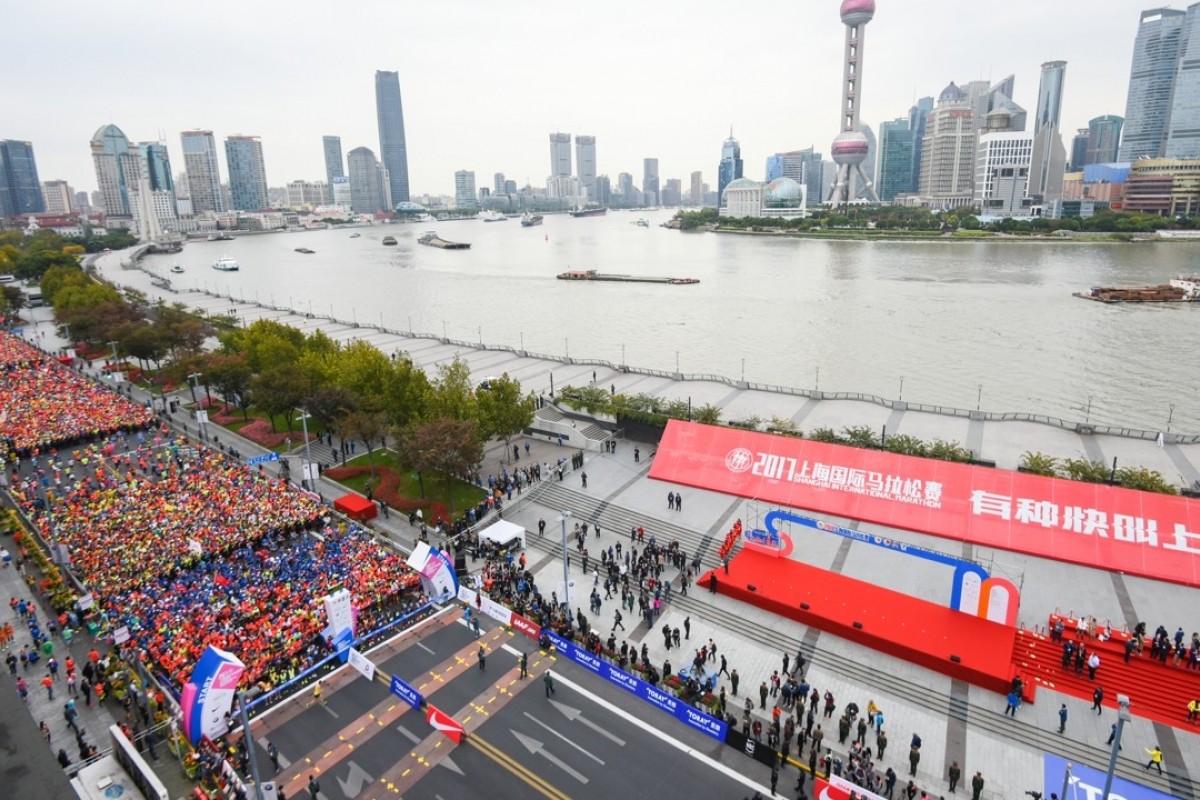
Lonyangata is among the main favorites in the men’s race. The 26-year-old Kenyan set his PB of 2:06:10 when winning the 2017 Paris Marathon, the first of two victories in the French capital. He set the Shanghai course record of 2:07:14 in 2015 and has a season’s best of 2:07:29, set when finishing third in Paris.
Bahrain’s Hassan El Abbassi is another top contender. The 35-year-old, who set his marathon PB of 2:04:43 in Valencia last year, is the 2014 Asian Games 10,000m champion and 2018 Asian Games marathon silver medalist. More recently he finished seventh in the marathon at the World Championships in Doha in 2:11:44 but is still in pursuit of his first international marathon title.
Kipsang Kipkemoi will compete in China for the first time in his career. The 29-year-old Kenyan clocked his PB of 2:08:26 in Seville in 2017 and came close to that in April when he finished second in Madrid with 2:08:58. Sunday’s race will be his fourth marathon of the year as he has also competed in Mumbai and Cape Town but didn’t better 2:10 on either occasion.
Other sub-2:10 runners in the field include Kenya’s 2011 world silver medalist Vincent Kipruto and Ernest Ngeno, a 2:06:41 performer who finished second in Shanghai two years ago.
by World Athletics
Login to leave a comment
Shanghai International Marathon
Shanghai International Marathon has established itself as the marquee running event on China’s Marathon calendar. Every November, tens of thousand participants run passing the many historical places of this city such as Bund Bull, Customs House, Shanghai Museum, Shanghai Grand Theater, Shanghai Exhibition center, Jing’an Temple, Nan Pu Bridge, Lu Pu Bridge, Long Hua Temple, Shanghai Stadium. The course records...
more...David Eikelboom has sights set on Shanghai International Marathon
It is off to China for Yukon runner David Eikelboom who will be competing in the 2019 Shanghai International Marathon on November 17.
In May, Eikelboom raced the BMO Vancouver Marathon and came seventh overall out of 2,766 athletes. He came fourth in his age group 30-34 and was the second Canadian to finish.

Both the Shanghai and Vancouver marathons have an agreement to send the top runner from each country to their respective races. The top Canadian finisher in Vancouver was Robin Watson, who declined the invitation to China, opening up the door for Eikelboom.
Eikelboom’s time in the Vancouver Marathon was two hours, 25 minutes and 26 seconds - only 16 seconds behind Watson. His final time in B.C. was far lower than his previous personal best.
“I was nine minutes faster than my best time,” said Eikelboom about his Vancouver time. In Shanghai, Eikelboom said he hopefully shave off another five minutes to get into the two hours, twenty minutes range.

“Opportunities really open up in the 2:20 range,” said Eikelboom. “Pan Am Games and World Championship qualifying times are 2:16 and being 2:20 is a good stepping stone. Being in that time, I am capable of that.”
The Shanghai marathon will feature 38,000 runners and will be the second-largest race Eikelboom has ever competed.
“In 2014 I ran the Boston Marathon a year after the Boston bombing,” said Eikelboom. “In Boston, you are a bit of a sardine but I never found it too crowded.”
This race will begin with the elite athletes at the front of the pack. “If you go out reasonably hard, the top 20-30 will have about 20-30 second gaps,” said Eikelboom. “There won’t be too many people around me.”
Eikelboom described the Shanghai Marathon as a “top-level race” comparable to marathons in Berlin and Toronto.
“The winning time was 2:09:19 last year,” said Eikelboom. “That’s pretty premium.”
Eikelboom said he is excited about China. “China was never a country I thought I need to visit,” said Eikelboom. “I’m only there for five days so I won’t get to do the whole tourist thing and see the sights.”
The race will take the runners past some landmarks like the Bund Bull, Shanghai Museum, and the Longhua Temple, to name a few, but Eikelboom said he doesn’t remember “a single thing from any of my races.”
At the start of a new running season, Eikelboom said he addresses his areas of need and works on making it an area of strength. He referred to this as training cycles and has been currently working on his sprinting.
“I’m a terrible sprinter and since July and August I was doing a lot of training sprinting,” said Eikelboom. “Sprinting won’t help with a marathon but it is a good predictor of performance and running economy. It’s about becoming more efficient.”
Before his sprint training, Eikelboom was working to improve his lactate threshold, which is a good indicator of overall fitness and aerobic capacity.
On top of the physical training, Eikelboom also said he has done mental training as well.
by John Tonin
Login to leave a comment
Shanghai International Marathon
Shanghai International Marathon has established itself as the marquee running event on China’s Marathon calendar. Every November, tens of thousand participants run passing the many historical places of this city such as Bund Bull, Customs House, Shanghai Museum, Shanghai Grand Theater, Shanghai Exhibition center, Jing’an Temple, Nan Pu Bridge, Lu Pu Bridge, Long Hua Temple, Shanghai Stadium. The course records...
more...Ethiopia’s Yebrgual Melese broke the women’s course record by more than a minute at the Shanghai International Marathon on Sunday
Login to leave a comment
Sub-2:20 runners Sarah Chepchirchir and Yebrgual Melese will face one another in the women’s race at Shanghai International Marathon
Login to leave a comment
Kenya's Lydia Cheromei is ready to return and win the women's title at the Shanghai Marathon
Login to leave a comment
Former Commonwealth Games marathon champion Flomena Cheyech has confirmed she will be competing at the Shanghai Marathon on November 18
Login to leave a comment
Injury has forced Paris Marathon champion Paul Lonyangata to not run Chicago
Login to leave a comment
World marathon record holder Dennis Kimetto says he has overcome his injury worries and hopes to make another comeback, this time running at the Shanghai Marathon in China in November
Login to leave a comment


